The other day an on-line customer thanked me for writing a chatty little reply as we acknowledged her order. We view our mail-order work as more than merely transactional so we enjoy cultivating in a small way a shopping experience that is something other than automatic and impersonal. What she said, though, made me chuckle.
She said she was glad to get a note which obviously wasn’t generated by AI. I think that was a happy compliment but it made me wonder — how does she know it isn’t autogenerated by a chatbot? I’m guessing my malapropisms and the occasional typo gives it away, but still…
Which brings me to this: another friend recently said, wisely, that people of faith simply must be speaking into this whole area of AI and should be offering insight about the proper role of technology in our lives, the nature of God’s world and normative principles that might influence a faithful unfolding of the possibilities for stewarding the digital reality. Cyberspace is one “sphere” or realm in God’s created order, after all; if Colossians 1 is to be believed, Christ created it, upholds it, is working reconciliation through it, and wants to be seen preeminent within it. The frustrating thing to me, or so I told my friend, was that such a call — for people of faith to be offering leadership in the ethical and appropriate opening-up and use of digital technologies, from AI to virtual reality down to more ordinary habits of how we use our cell phones and TikTok apps — can sometimes be sounded as if there hasn’t been considerable thought given to these things within the faith community already. That is, Christian scholars — philosophers of science, engineers, digital designers, computer scientists, and the like — have for decades been writing about (a) technology and (b) computer science and (c) ordinary virtues for typical users of games, phones, screens, bots, and so forth.
So, sure, we desperately need wise “sons and daughters of Issachar” (1 Chronicles 12:32) who understand the times and know what a Godly response might be, and we need scholarly brainstorming about all manner of philosophical implications of this newfangled world we find ourselves in, theologians and Christians in science and philosophy and the tech world working together to help us discern a way forward — in but not of the current zeitgeist(s). But, also, we can be grateful, very grateful, for all the good work already done — illustrated in the dozens and dozens of books written in the last decades offering a Christian assessment of and a guide into embodied faithfulness in the use of modern tools and myriad digital technologies.
My friend, it seems, had little appreciation of how many substantial voices there have been, and how much good and balanced and thoughtful insight there is, not exactly a consensus, but a common vibe, perhaps. Some err on the side of being a bit negative, worried about sinful idolatries and dehumanizing implications and some err on the side of being a bit too optimistic, naive about the distortions and dangers embedded in the digital realm, but most are deeply aware of the good, the bad, and the ugly. I praise the Lord for those who have done pioneering work in this emerging area, and hope that even these recommendations here of just some of the books on our Dallastown shelves might help shape the public conversation about these urgent matters.
There is no need to moan about the church’s voice not being developed, although many folks (from church-going tech professionals to most ordinary people) may not have heard or understood or taken to heart the wise counsel of so many authors over the last decades. Some bookstores don’t carry this kind of stuff. I get it. But the work has been done; kudos! Now we book evangelists just have to get the word out, sharing far and wide the provisional Godly perspectives, the books written, about this whole realm of God’s good creation that seems so disorienting to many of us, and so natural to others.
In this BookNotes column I will list a good bunch of such books as illustrative of the efforts that have been offered thus far. The list is nowhere near comprehensive, but, as is often the case here, I will name some of the best books that have emerged in the last few generations about appropriate technology, Christian thinking about engineering, and especially computer science and our daily lives in a high-tech, digital world. It’s rough and not even close to complete and certainly not all that needs to be said. But it is my quick bookseller’s overview, for you. and yours. No ChatGPT written stuff from here, either. Enjoy.
As always, it is best to order through our secure website order page, shown at the end of this BookNotes column. Sometimes good friends send wonderfully lovely notes ending in “send that book” or “I gotta read that one.” Alas, sometimes it isn’t clear where we are to send the items (if at all) and how the customer wants to pay. However you order, know that we are deeply grateful for your support of our project here in south central PA (and all over, thanks to cyberspace and good, old-fashioned mail order.) Just be sure your orders are clear about what you want and how you want to pay so that we can serve you well. All items mentioned are 20% off. THANKS.
There are four sections. The first listing will be foundational, even classic literature about understanding the technological age. Some of these were written before computers or the possibilities of the internets were upon us.
Then I will list what might be considered more recent voices helping Christians develop a theological and spiritually-sane approach to digital technology. Some of these were written a decade ago, some much more recently, each one more or less relevant today. Again, these are fairly heavy on analysis. A few will be about congregations, too, doing ministry in an age of virtual reality.
I will then recommend a few books on artificial intelligence.
Lastly I suggest some (mostly) recent titles that tend to be more practical in nature, thoughtful, but for ordinary device users. Several of these are really important and should be in every church library, everywhere.
FOUNDATIONAL AND CLASSIC WORKS ABOUT TECHNOLOGY
 Technics and Civilization Lewis Mumford (The University of Chicago Press) $31.00 / OUR SALE PRICE = $24.80
Technics and Civilization Lewis Mumford (The University of Chicago Press) $31.00 / OUR SALE PRICE = $24.80
Respected by many of our best social thinkers and prophets in the 20th century, Mumford was a legendary and respected historian who wrote about cities and urban planning, the arts, and, importantly, this compelling history of the machine and its effect on civilization. Presented in 1934, he argued, among other things, that the development of modern technology had its roots in the Middle Ages rather than the Industrial Revolution. I’ve been meaning to read this for almost 50 years, I think…. One of these days.
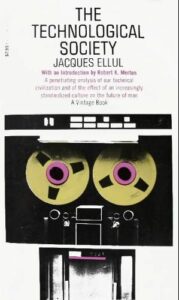 The Technological Society Jacques Ellul (Vintage) $14.95 / OUR SALE PRICE = $11.96
The Technological Society Jacques Ellul (Vintage) $14.95 / OUR SALE PRICE = $11.96
Originally published in France in 1954 and in its English translation in 1964, it remains one of the most important social critiques of the 20th century, highly regarded in mainstream secular circles and among those who knew Ellul was a serious Christian, informed by thoughtful, radically Protestant theology. There are many more books penned by this profound critic, and even more about him. This is a vital touchstone, monumental and prophetic.
 Technology and the Character of Contemporary Life: A Philosophical Inquiry Albert Borgmann (The University of Chicago Press) $37.00 / OUR SALE PRICE = $29.60
Technology and the Character of Contemporary Life: A Philosophical Inquiry Albert Borgmann (The University of Chicago Press) $37.00 / OUR SALE PRICE = $29.60
Written in the early 1980s, revised in 1987, this late, brilliant Montanan, Catholic philosopher was befriended, eventually, by the wise Eugene Peterson, who cited him often. This is a heady and deep study, very important.
Power Failure: Christianity in the Culture  of Technology Albert Borgmann (Brazos Press) $20.00 / OUR SALE PRICE = $16.00
of Technology Albert Borgmann (Brazos Press) $20.00 / OUR SALE PRICE = $16.00
More focused, and succinct, this one was written in 2003 for a more religious readership is his splendid this Brazos Press release. For some, this is his most important work because it is accesible and clear; it still is a philosophically rigorous volume and offers deep reflections on how theological notions (and Christian practices) might influence our supposing what technology is all about.
Note his chapter on being communities of celebration, his work on festivity, and, of course, the chapter “The Culture of the Word and the Culture of the Table.” All trying to help us navigate the “power failures” of our contemporary technocratic culture.
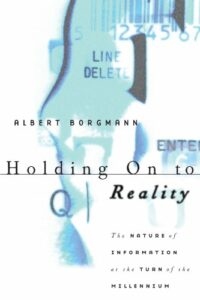 Holding On To Reality: The Nature of Information at the Turn of the Millennium Albert Borgmann (The University of Chicago Press) $28.00 / OUR SALE PRICE = $22.40
Holding On To Reality: The Nature of Information at the Turn of the Millennium Albert Borgmann (The University of Chicago Press) $28.00 / OUR SALE PRICE = $22.40
This came out in 1999, a blend of his brilliance in Technology and the Character… and his important Crossing the Postmodern Divide. Margaret Wertheim (in the LA Weekly) called it “insightful and poetic” which the New Scientist said it was “a superb new anecdotal analysis of information for a hype-addled age.” Whew.
 Technology and the Good Life? edited by Eric Higgs, Andrew Light, & David Strong (The University of Chicago Press) $25.99 / OUR SALE PRICE = $20.79
Technology and the Good Life? edited by Eric Higgs, Andrew Light, & David Strong (The University of Chicago Press) $25.99 / OUR SALE PRICE = $20.79
This compiles what Langdon Winner calls “spirited philosophical voices” to honor and ask about the work of Albert Borgmann, examining his philosophy and view of culture and technology from a variety of perspectives. One critic noted that it “straddles Heidegger’s Germany and postwar America” and thereby offers important history and deep analysis about technology and the human condition. This is good stuff, deep and rich.
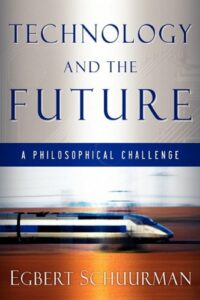 Technology and the Future: A Philosophical Challenge Egbert Schuurman (Paideia Press) $19.99 / OUR SALE PRICE = $15.99
Technology and the Future: A Philosophical Challenge Egbert Schuurman (Paideia Press) $19.99 / OUR SALE PRICE = $15.99
Egbert Schuurman is a Dutch neo-Calvinist who studied reformational philosophy under Herman Dooyeweerd at Kuyper’s university in Amsterdam which gave him an astute handle to see technology as essentially good (as created and ordered by God’s Word), even though fallen and idolatrous, and yet being redeemed by the gospel of the Kingdom. Until his retirement he taught engineering at a university in Holland, but also courses of deep cultural analysis.
I used a small collection of his essays — now long out of print — with engineering students when I worked in campus ministry in the late 1970s. Technology and the Future is his most serious philosophical study, dense, thick and for those inclined towards this philosophical treatise, nearly unparalleled.
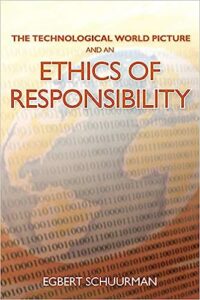 The Technological World Picture and an Ethics of Responsibility: Struggles in the Ethics of Technology Egbert Schuurman (Dordt College Press) $12.99 / OUR SALE PRICE = $10.39
The Technological World Picture and an Ethics of Responsibility: Struggles in the Ethics of Technology Egbert Schuurman (Dordt College Press) $12.99 / OUR SALE PRICE = $10.39
Translated less than a decade ago by the late, great philosopher at Dordt, John Kok, this is a rigorous but brief book — about 80 pages. Here is how the publisher describes it:
What does the Judeo-Christian tradition have to say about a responsible ethics of technology? In these pages, Schuurman discusses the need for an ethics of technology and the spiritual-historical background of modern technology. The spirit of the Enlightenment has produced a scientific-technological picture of the world, with an ethical mix of values and norms that is still current. But there are alternative approaches. After drawing attention to the cosmological and the ethical deficiencies in contemporary ethics, Schuurman makes a case for a different approach that starts with the “enlightenment of the Enlightenment,” that addresses these deficiencies, and that implies a cultural paradigm different from the current one. He frames ethics as an ethics of responsibility and highlights the priorities, values, and norms that such an ethic implies. He also speaks to concrete possibilities inherent to this approach that could reorient our technological culture and that would lead to political changes as well. His is a new perspective that will undoubtedly involve struggle, but it also affords hope.
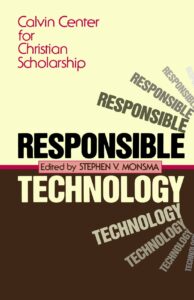 Responsible Technology edited by Stephen V. Monsma (Eerdmans/ Calvin Center for Christian Scholarship) $27.50 / OUR SALE PRICE = $22.00
Responsible Technology edited by Stephen V. Monsma (Eerdmans/ Calvin Center for Christian Scholarship) $27.50 / OUR SALE PRICE = $22.00
Now out of print, but still stocked at Hearts & Minds, this brilliant book is the only one of its kind, offering an interdisciplinary, overtly Christian study of technology and foundational principles for engineering. Some of it may be dated for modern-day engineers (and it doesn’t deal with computer or digital technologies) but its view of technology and its role in culture is brilliant. As you might guess from the Calvin Center for Christian Scholarship it understands and grapples with Ellul’s analysis of the negative consequences and dangers of technology while still affirms that the possibility of “fabrication” is God-given and able to be redeemed, durable, even, for the new creation.
An old friend and astute scholar, Kenn Hermann of Kent State University, wrote of it back in the 1980s:
Responsible Technology makes a significant, much-needed contribution to developing a distinctly Christian perspective on the influential role technology plays in our culture. The range of issues discussed, the depth of insight, the sensitivity to biblical directives, and the cogent presentation are all impressive. The articulation of specific biblically rooted norms that ought to guide and shape our responsibility before the Lord in fabricating and using technological objects is particularly illuminating. All thoughtful Christians, whether professionals, academics, or concerned citizens, will want to read and ponder the implications of this book for guiding their obedience in a technological society.
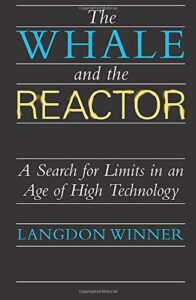 The Whale and the Reactor: A Search for Limits in an Age of High Technology Langdon Winner (The University of Chicago Press) $26.00 / OUR SALE PRICE = $20.80
The Whale and the Reactor: A Search for Limits in an Age of High Technology Langdon Winner (The University of Chicago Press) $26.00 / OUR SALE PRICE = $20.80
A serious read, this wisely asks us to search for limits. Although not overtly from a Christian perspective, many consider it a “must read.” It was published to much acclaim in 1988, I think. Classic — and a good way to think about ongoing questions of our technological age.
 Beyond Paradise: Technology and the Kingdom of God Jack Swearengen (Wipf & Stock) $45.00 / OUR SALE PRICE = $36.00
Beyond Paradise: Technology and the Kingdom of God Jack Swearengen (Wipf & Stock) $45.00 / OUR SALE PRICE = $36.00
Jack is a rare Christian leader who has worked in engineering, has taught, has worked in the private industry sector and was a government staffer, a top consultant to the White House years ago in the technologies of dismantling nuclear weapons. He has read widely, thought deeply, and draws on tons of experiences, making this a major contribution, not nearly known widely enough.
 Confronting Technology: The Theology of Jacques Ellul Matthew T. Prior (Pickwick Publications) $35.00 / OUR SALE PRICE = $28.00
Confronting Technology: The Theology of Jacques Ellul Matthew T. Prior (Pickwick Publications) $35.00 / OUR SALE PRICE = $28.00
Part of the Princeton Theological Monograph Series, this Anglican priest offers what some consider to be the best introductory and serious overview of the vision of Jacques Ellul. Weighty and detailed, it is endorsed by one of the leading interpreters of Ellul today, David Gill, who says it is “nothing less than a masterpiece.”
“Nothing less than a masterpiece.” David Gill
Gill insists, “All readers of Ellul and all students of theology and technology should put this book on the top of their reading list. It really is that good.”
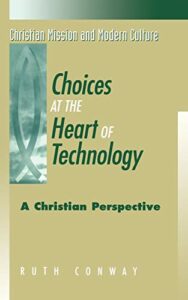 Choices at the Heart of Technology Ruth Conway (Trinity Press International) $32.95 / OUR SALE PRICE = $26.36
Choices at the Heart of Technology Ruth Conway (Trinity Press International) $32.95 / OUR SALE PRICE = $26.36
This little book came out in the UK in the 1990s and it was prescient. Who knew?
Ruth Conway, who has worked with the World Council of Churches, was a founding member of the VALIDATE (Values in Design and Technology Education) network, initially associated with the British Council of Churches and later linked with professional associations of technology educators. She has explored the beliefs and commitments that lie behind the value judgments made in the development of any specific technology.
The paperback is small but it is exceptionally thought provoking, part of the “Christian Mission and Modern Culture” series (inspired, in part, by the work of Lesslie Newbigin.) Here is something the publisher said about it, even though the back cover is more inviting and gentle:
What really drives the technologies that dominate our modern world? Ruth Conway here brings under scrutiny: the deceptive dreams of development, the masculine “voice and structure” of so much technology, the obsession with control that obliterates both recognition of human fallibility and sensitivity to the needs of “the other,” the inadequacies of technologies that fail to take account of the “wholeness” of life and what might constitute “justice” (right relationships) within the human community and with nature, and the impact of information and communication technologies on our ways of relating to one another.
 Illusions of Freedom: Thomas Merton & Jacques Ellul on Technology and the Human Condition Jeffrey M. Shaw (Pickwick Publications) $29.00 / OUR SALE PRICE = $23.20
Illusions of Freedom: Thomas Merton & Jacques Ellul on Technology and the Human Condition Jeffrey M. Shaw (Pickwick Publications) $29.00 / OUR SALE PRICE = $23.20
The late Albert Borgmann wistfully notes that “Jeffrey Shaw has carefully arranged in a book what never took place in reality, a conversation between Ellul and Merton.” Actually, Merton aficionados know of his great interest in Ellul, having read a French edition of The Technological Society before a famous peacemaking retreat with several important religious activists. Phillip Thompson of the Aquinas Center of Theology at Emory University says it is “an important contribution” about how to “preserve our freedom when we are being seduced by the false technical ideals of efficiency, productivity, and utility.”
 Returning to Reality: Thomas Merton’s Wisdom for a Technological World Phillip M. Thompson (Cascade Books) $21.00 / OUR SALE PRICE = $16.80
Returning to Reality: Thomas Merton’s Wisdom for a Technological World Phillip M. Thompson (Cascade Books) $21.00 / OUR SALE PRICE = $16.80
Several remarkable scholars have all raved about this, from Albert Borgmann (of the University of Montana) to Lawrence Cunningham (of University of Notre Dame.) Naturally, the monk Tom Merton will be a guide to walking us towards a “contemplative critique” of our manufactured apocalypse. (Did you know Merton read Ellul in the French before the English translation hit America?) There is even a speculative but prophetic chapter asking what Merton might say about transhumanism. About 100 pages.
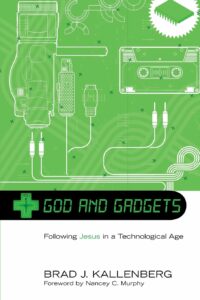 God and Gadgets: Following Jesus in a Technological Age Brad J. Kallenberg (Cascade Books) $26.00 / OUR SALE PRICE = $20.80
God and Gadgets: Following Jesus in a Technological Age Brad J. Kallenberg (Cascade Books) $26.00 / OUR SALE PRICE = $20.80
With blurbs on the back from Stanley Hauerwas, who reminds us of Kallenberg’s background in engineering, deep study of philosophy (Wittgenstein, if you must know) and “shaped by Christian theological conditions”, this really does offer helpful insight about resisting and affirming the “mixed blessing” of our technological culture and digital age.
I will never forget when Jamie Smith had a picture of it on a screen during a major address at the Jubilee conference in Pittsburgh with over 3000 college students, and a fire alarm went off (it had malfunctioned, we later found out, and there was no fire) causing us to evacuate the hotel conference center. When the beep, beep, beeping, began I first thought it was something Jamie had done on purpose to illustrate the point that Kallenberg makes, reminding us of the dangers of an uncritical experience of technology that may hamper our faithful practice and witness. Anyway, Smith liked God and Gadgets a lot and we highlight it here, without any alarms going off.
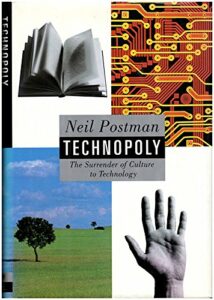 Technopoly: The Surrender of Culture to Technology Neil Postman (Vintage) $16.00 / OUR SALE PRICE = $12.80
Technopoly: The Surrender of Culture to Technology Neil Postman (Vintage) $16.00 / OUR SALE PRICE = $12.80
The famed New York Jewish media critic explores why our loyalty to “technique” — channeling Ellul — is so very dangerous. He winsomely explores the implications of modernization with its idols of efficiency (no matter what!) and inspires us to be what he calls “loving resistance fighters.” It has been described as witty and yet an “often terrifying” work of cultural criticism. Not as obtuse as Ellul or as philosophical as Borgmann, this is a must-read for those wanting to understand an early concern about the dehumanizing influences of technology and the “more/faster is better” spirit of modern progress. Very highly recommended for one concerning assessment.
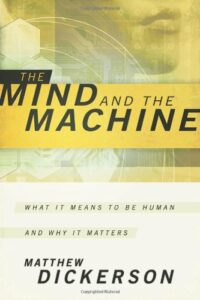 The Mind and the Machine: What It Means to Be Human and Why It Matters Matthew Dickerson (Brazos Press) $19.99 / OUR SALE PRICE = $15.99 (while supplies last; it has been reprinted and the new price is now considerably more.)
The Mind and the Machine: What It Means to Be Human and Why It Matters Matthew Dickerson (Brazos Press) $19.99 / OUR SALE PRICE = $15.99 (while supplies last; it has been reprinted and the new price is now considerably more.)
Matthew is known for writing about his beloved Hobbits and has both popular and exceptionally scholarly work on environmental science in both Middle Earth and Narnia. He has memoirs of fishing and a great book about epic narratives. This, though, is “an engaging and probing exploration of some of the fundamental questions humans ask about themselves.” Publishers Weekly called it “complex and thoughtful” and Peter Kreeft raved, saying it is “an accessible introduction to the central questions about human nature” and, of course, thereby is poking against the techno gurus who (as Quentin Schultze put it in his fine endorsement) “reduce human beings to machine-like creatures supposedly in the name of progress.”
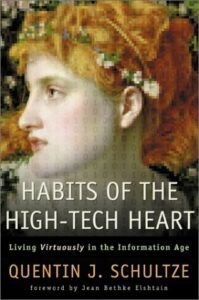 Habits of the High-Tech Heart: Living Virtuously in the Information Age Quentin Schultze (Baker Academic) $22.00 / OUR SALE PRICE = $17.60 while supplies last
Habits of the High-Tech Heart: Living Virtuously in the Information Age Quentin Schultze (Baker Academic) $22.00 / OUR SALE PRICE = $17.60 while supplies last
This came out in 2002 and at the time it became one of my most-recommended books; I still love it, especially for its deeper study of virtue — the kind of people we must be if we are going to live well in these days. Oddly, it didn’t sell as well as it might have; it seemed to me that it was very badly needed, but ahead of its time. Oh, if it were still in print! (We only have a few left.) With blurbs from major scholars like Walter Ong (Orality and Literacy) and thought leaders like Richard Mouw, and with a lucid foreword by political theorist Jean Bethke Elshtain, it was a masterpiece of a book, thoughtful, useful, wise. Yes!
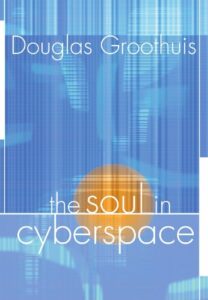 The Soul of Cyberspace Douglas Groothuis (Wipf & Stock) $19.00 / OUR SALE PRICE = $15.20 (while supplies last; the new price is now considerably more.)
The Soul of Cyberspace Douglas Groothuis (Wipf & Stock) $19.00 / OUR SALE PRICE = $15.20 (while supplies last; the new price is now considerably more.)
This was first released in late 1990s by the great Trinity Forum in a splendid little series of short books called “Hourglass Books” that tackled, for ordinary thoughtful readers, meaningful and important aspect of our cultural malaise. The series intended to help us be “in the world but not of it” and to become true agents of “salt and light” by firstly thinking well about a topic, in light of a Biblical worldview. This was perhaps the first serious book I read about cyberspace and the ethics of living well in this then new digital realm. Even as folks were beginning to embrace computers, we couldn’t get anyone to buy it. It is a shame, too, as it was prescient.
The always profound Ken Myers (of Mars Hill Audio Journal) wrote this about it:
While most Christians are content with a superficial and pragmatic assessment of the new information technologies, Douglas Groothuis probes more deeply. He wisely recognizes the symbolic power of technology: machines don’t just do things, they shape us by equipping our imaginations and language with powerful new images, metaphors, and assumptions. Groothuis has done a great service in alerting us to the temptations that will challenge the twenty-first century church, and in providing the tools to discern what is real, what is true, and what is to be treasured. — Ken Myers
 Information Technology and Cyberspace: Extra-Connected Living? David Pulling (Pilgrim Press) $16.00 / OUR SALE PRICE = $12.80 while supplies last
Information Technology and Cyberspace: Extra-Connected Living? David Pulling (Pilgrim Press) $16.00 / OUR SALE PRICE = $12.80 while supplies last
This is out of print but we still have a few, having stocked it for anyone interested in a thoughtful, even progressive Christian reflection on computer technologies. With a blurb by then-Archbishop of Wales, Rowen Williams (who said it provided “first class tools for ethical reflection”) we knew it was reflecting well on how IT and e-commerce (as it was then called) shaped the experience of daily living. What are the implications for Christian belief and practice? Who is my neighbor in a world shaped by cyberspace?
This was innovative and profound in its early manifestation of Christian thinking. I doubt the author ever imagined how deeply linked in we are just two decades after his reflections offered here. Fascinating.
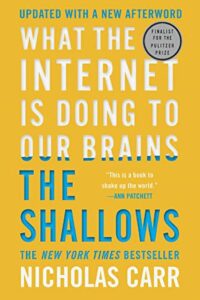 The Shallows: What the Internet Is Doing to Our Brains Nicolas Carr (Norton) $17.95 / OUR SALE PRICE = $14.36
The Shallows: What the Internet Is Doing to Our Brains Nicolas Carr (Norton) $17.95 / OUR SALE PRICE = $14.36
This remains one of the most important books I’ve read in my life, and I can’t say enough about it. Expanding his famous “Is Google Making Us Dumb?” piece in The Atlantic, nominated in 2010 for a Pulitzer Prize, this shows how Carr, a great literary mind and professional book reviewers, felt his capacity slipping due to, he discovered, reading too much spiffy short-form pieces online. Called by one critic “a measured manifesto” it is game-changing, vital, and we wish it were better known and widely discussed.
The subtitle of Nicholas Carr’s The Shallows: What the Internet is Doing to Our Brains leads one to expect a polemic in the tradition of those published in the 1950s about how rock ‘n’ roll was corrupting the nation’s youth. But this is no such book. It is a patient and rewarding popularization of some of the research being done at the frontiers of brain science … Mild-mannered, never polemical, with nothing of the Luddite about him, Carr makes his points with a lot of apt citations and wide-ranging erudition. — Christopher Caldwell, Financial Times
Ultimately, The Shallows is a book about the preservation of the human capacity for contemplation and wisdom, in an epoch where both appear increasingly threatened. Nick Carr provides a thought-provoking and intellectually courageous account of how the medium of the Internet is changing the way we think now and how future generations will or will not think. Few works could be more important. — Maryanne Wolf, author of Proust and the Squid: The Story and Science of the Reading Brain and Reader, Come Home.
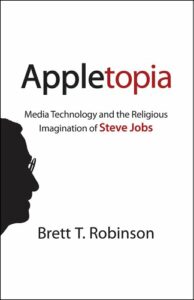 Appletopia: Media Technology and the Religious Imagination of Steve Jobs Brett T. Robinson (Baylor University press) $24.95 / OUR SALE PRICE = $19.96
Appletopia: Media Technology and the Religious Imagination of Steve Jobs Brett T. Robinson (Baylor University press) $24.95 / OUR SALE PRICE = $19.96
The brilliant and widely read Nicholas Carr (The Shallows) says “as expansive as it is concise, Brett Robinson’s Appletopia provides an astute and often scintillating examination of Steve Jobs and the Apple Way.” Scintillating is putting it mildly — Q Schultze uses words like splendid and fun and fascinating, but finally says this study of the deeply spiritual meanings of the Mac (and of Jobs himself) is a “prophetic read.” Indeed. The pictures (of the Apple Store in NYC, for instance) are nearly eerie, helping us understand why some are so deeply devoted to the brand. It is about, one marketing guru says, “transcendence itself.”
MORE RECENT FOUNDATIONAL BOOKS ON FAITHFUL LIVING IN THE TECH AGE
 The Philosopher of Palo Alto: Mark Weiser, Xerox PARC, and the Original Internet of Things John Tinnell (The University of Chicago Press) $29.00 / OUR SALE PRICE = $23.20
The Philosopher of Palo Alto: Mark Weiser, Xerox PARC, and the Original Internet of Things John Tinnell (The University of Chicago Press) $29.00 / OUR SALE PRICE = $23.20
I don’t exactly know why I ordered this brand new book to stock in our store — I guess I wondered about this storied PARC, sort of a parallel creative, high-tech think tank that paralleled MIT labs or, a bit earlier, the famous Bell Laboratories. I wanted to get behind the recent history of the rise of the internet and although I had not heard of Mark Wesier, I came to realize he is one of the absolutely key players in the rise of what is colloquially known as Silicon Valley, and what it represents. As the always great Nicholas Carr (of The Shallows) said, “Anyone looking to understand how technology is shaping society today, The Philosopher of Palo Alto is a compelling and necessary read.”
Indeed, part morality tale, part inspiring social history, part investigative page-turner, “ubiquitous computing” is the start of AI. The first 5 pages had me hooked and 100 pages in I realize this is truly a remarkable read, informative and learned and absolutely fascinating.
And, I must say, that more than once a former customer of ours — Thad Sterner, for any Dallastown friends reading this, the brilliant and lovely son of the dear Ruth Marshall (a humble evangelical woman who ran the little rescue mission here in town) — shows up several times in the narrative. I will never forget Thad telling me as a college student how he was even then inventing and playing with what he called “wearables.” This isn’t transhumanism, as such, but, man, it was weirdly exciting, and I was a little proud to know a kid who bought books from us as a youth was clearly going places. Who knew just where it all would lead? Who knows where it will yet all lead?
In any case, this “riveting, up-close account” is more than the story of a driven, high-energy savant, cool as that narrative would be. This is more profound, with more incisive social and cultural criticism, even as the story of the arc of Weiser’s humane ideas, the place where they tooled it all, and how it seems to be leading to what one reviewer called “the hyper-connected, surveillance-driven high mare we inhabit today.” That’s from Fred Turner, author of the important work From Counterculture to CyberCulture, who says this is “a deeply unsettling and cautionary tale.” I think it provides a marvelously real (and a bit philosophic) background story to our very real, digital age.
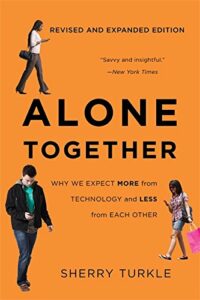 Alone Together: Why We Expect More from Technology and Less from Each Other Sherry Turkle (Basic Books) $18.99 / OUR SALE PRICE = $15.19
Alone Together: Why We Expect More from Technology and Less from Each Other Sherry Turkle (Basic Books) $18.99 / OUR SALE PRICE = $15.19
You may know Turkle’s story, a professor of social science and technology at MIT, who was an early cheerleader for digital culture and who, decades later, after considerable re-thinking and tons of first-hand research, changed her perspective and has been a clear and critical voice about the overuse of technologies. She notes, here, that tech has become “the architect of our intimates” and documents that as technology ramps up, our emotional lives ramp down. I am not fully sure that this is always so, but this edition is the second, revised and expanded volume and should be on the shelf of every serious person wanting to understand our culture. Which is to say, if you are a leader, campus minister, pastor, or parent of youth these days, this is a must-read. At over 350 pages you still won’t be able to put it down, provocative and vivid and worrying.
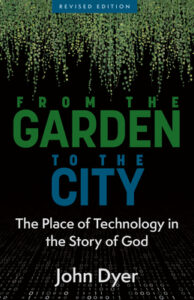 From the Garden to the City: The Place of Technology in the Story of God John Dyer (Kregel) $18.99 / OUR SALE PRICE = $15.19
From the Garden to the City: The Place of Technology in the Story of God John Dyer (Kregel) $18.99 / OUR SALE PRICE = $15.19
When this first came out I sensed that it was very, very good. Easy to read, interesting, wise, even practical. The blurb on the back by Andy Crouch convinced me that I should promote it widely, especially for nonspecialists who hadn’t read much about the history of science or the philosophy of technology. This recently revised edition is even better, and we highly recommend it. Even Kevin Kelly, of Wired magazine gave a great shout out. Nice.
Andy Crouch, author of The Tech Wise Family and The Life We’re Looking For, says this:
“Creative, unpredictable, and surprisingly moving… With Dyer’s help, you will never see either a shovel or a smartphone the same way again.”
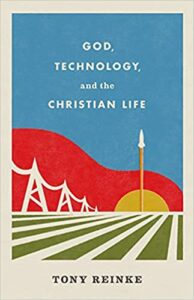 God, Technology, and the Christian Life Tony Reinke (Crossway) $21.99 / OUR SALE PRICE = $17.59
God, Technology, and the Christian Life Tony Reinke (Crossway) $21.99 / OUR SALE PRICE = $17.59
As it says on the back cover, “From smartphones to self-driving cars to space travel, new technologies can inspire us. But the breakneck pace of change can also frighten us.” Reinke is a thoughtful Bible scholar who observes how new technological inventions may disclose something of God’s will, which is to say that while he is not a naive technological optimist, Reinke avoids the negativism of Ellul et al. He examines nine key texts from Scripture to show how the world’s discoveries and inventions may be divinely orchestrated.
John Dyer, whose book From the Garden to the City is very good, says Reinke is “ethical without being moralistic, careful without being restrictive, and positive without being naive.” Sounds good, eh?
 A Christian Field Guide to Technology for Engineers and Designers Ethan Brue, Derek Schuurman & Steven H. Vanderleest (IVP Academic) $28.00 / OUR SALE PRICE = $22.40
A Christian Field Guide to Technology for Engineers and Designers Ethan Brue, Derek Schuurman & Steven H. Vanderleest (IVP Academic) $28.00 / OUR SALE PRICE = $22.40
I wasn’t sure if I should list this as it primarily is for engineers and designers, but it is so exceptional, so good, I had to mention it. There is nothing like it in print and I wanted to take this opportunity to highlight it again, since its views of technology are upbeat and aware, framed through the Biblical grid of creation-fall-redemption, and develops a consistent Christian mind for those taking up the vocation of working in this field as a holy calling. It clearly explores Biblical themes related to technology, offers ethics and norms for technological design, and asks how engineering and technology tap into God-given human dreams for a better world.
The authors have, respectively, PhDs in mechanical engineering, electrical engineering, and computer science. While Brue teaches engineering (at Dordt University in Iowa), Schuurman teaches computer science at Calvin University in Grand Rapids. Venderleest is principal engineer for multicore solutions at Capita Systems Inc. and an app developer at squishLogic.
 Techne: Christian Visions of Technology edited by Gerald Hiestand & Todd Wilson (Cascade Books) $34.00 / OUR SALE PRICE = $27.20
Techne: Christian Visions of Technology edited by Gerald Hiestand & Todd Wilson (Cascade Books) $34.00 / OUR SALE PRICE = $27.20
This recent book emerged from the excellent work of theCenter for Pastor Theologians, helping pastors work on their theological capacities and helping them engage contemporary issues with flare and grace. This almost 250 page volume came out of one of the most urgent and remarkable events they have done. There are fourteen major chapters from eloquent speakers like Andy Crouch and thoughtful critics like Felicia Song. (Don’t miss the nice piece by Karen Swallow Prior on the “technologies of reading.”) This is a book we ought to promote as it covers so much, so well. Fascinating, wise, tremendously done.
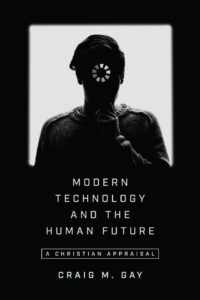 Modern Technology and the Human Future: A Christian Appraisal Craig M. Gay (IVP Academic) $30.00 / OUR SALE PRICE = $24.00
Modern Technology and the Human Future: A Christian Appraisal Craig M. Gay (IVP Academic) $30.00 / OUR SALE PRICE = $24.00
“From the plough to the printing press,” this wonderful book reminds us, “technology has always shaped human life and informed our understanding of what it means to be human.” And, significantly, technology is not neutral. (In other words, it is too simplistic and easy to merely say any device can be used for good or for ill, forgetting that the very fabrication of any artifact carries with it certain baked in qualities, making it easier to use well or misuse. Few would disagree that computers and smartphones and the like have yielded tremendous benefits. But do these devices encourage human flourishing, and if so, how do they, do so?
As we think about the doctrine of the incarnation of Jesus in the world, we note that that is not “neutral” either. Gay explores the doctrine of the incarnation and what it means for our embodiment— perhaps with a “course correction to the path of modern technology without asking us to unplug completely.”
Kutter Callaway (professor of theology and culture at Fuller) notes that Craig Gay “is neither a luddite nor a technophile.” Hooray.
The wonderful spiritual formation writer Gordon Smith (of Ambrose University) says:
One of the most critical conversations of our day is quite simply this: How do we manage the machines and technologies that intersect our lives in a way that is consistent with our core Christian commitments? Craig Gay in this volume makes an invaluable and essential contribution, helping his readers think critically and more clearly about aspects of our daily experience that we all too easily take for granted. And part of the strength of this contribution is that Gay insists we need to think theologically about technology―that is, to view technology and respond to technology in light of the Triune God and a biblical understanding of what it means to be the church. And, of course, to then respond to the challenge of our day in a way that is intentional, discerning, and hopeful.
Agree or not with professor Gay’s lucid and astute proposals, this audacious project, described well by Smith, is something we all should applaud. This is what good Christian nonfiction books must do.
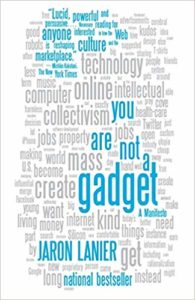 You Are Not a Gadget Jaron Lanier (Vintage) $17.00 / OUR SALE PRICE = $13.60
You Are Not a Gadget Jaron Lanier (Vintage) $17.00 / OUR SALE PRICE = $13.60
Jaron Lanier is a famous programmer and one of the true fathers of virtual reality technology, making him a pioneer in digital media. He was among the earliest to predict the revolutionary changes his work would bring to our commerce and culture.
In this book — with a new introduction and afterward in 2011 — he turns agitated and pessimistic and discusses “the technical and cultural problems that have unwittingly arisen from programming choices that were “locked in” at the birth of digital media. He wonders what a future based on current design philosophies will bring.
Mind-mending, exuberant, brilliant…. Lanier dares to say the forbidden — The Washington Post
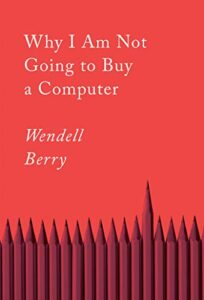 I do not agree with it, really, but you should also know of his little book called a “timely call-to-arms” — Ten Arguments for Deleting Your Social Media Accounts Right Now (Picador; $13.00 / OUR SALE PRICE = $10.40.) And, by the way, while you’re at it, you can order from us a pocket-sized, handsome little Counterpoint edition of the famous Wendell Berry essay, Why I Am Not Going to Buy a Computer ($10.00 / OUR SALE PRICE = $8.00.)
I do not agree with it, really, but you should also know of his little book called a “timely call-to-arms” — Ten Arguments for Deleting Your Social Media Accounts Right Now (Picador; $13.00 / OUR SALE PRICE = $10.40.) And, by the way, while you’re at it, you can order from us a pocket-sized, handsome little Counterpoint edition of the famous Wendell Berry essay, Why I Am Not Going to Buy a Computer ($10.00 / OUR SALE PRICE = $8.00.)
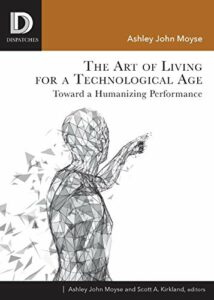 The Art of Living for a Technological Age: Toward a Humanizing Performance Ashley John Mayes (Fortress) $18.00 / OUR SALE PRICE = $14.40
The Art of Living for a Technological Age: Toward a Humanizing Performance Ashley John Mayes (Fortress) $18.00 / OUR SALE PRICE = $14.40
This is in the heady “Dispatches” line of bold but brief books done by Fortress with a eye to justice in public theology; they are scholarly, for the most part, and seriously imagined — it draws on Heidegger (of course) and Barth, Stringfellow and Ellul, and lots of scholars I never heard of. Whew.
Technology is not a mere tool but an ontology, a way of being that frames how we see and handle everything. We must either reshape our use of technology or become transformed by it into the dehumanizing form of efficient mastery. A must read for anyone interested in humanizing our world today. — Jens Zimmermann, J.I. Packer Professor Theology, Regent College
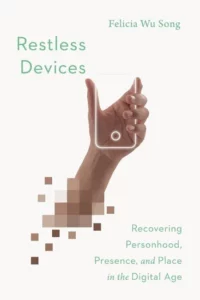 Restless Devices: Recovering Personhood, Presence, and Place in the Digital Age Felicia Wu Son (IVP Academic) $24.00 / OUR SALE PRICE = $19.20
Restless Devices: Recovering Personhood, Presence, and Place in the Digital Age Felicia Wu Son (IVP Academic) $24.00 / OUR SALE PRICE = $19.20
Those who know Dr. Son know her to be a brilliant cultural sociologist of media and digital technologies. She currently teaches at Westbound College in Santa Barbara and is travelling quite a bit sharing her considerations based on the data she accumulated researching this book. She notes that “in our current digital ecologies, small behavioral shifts are not enough to give us freedom. We need a sober and motivating vision of our prospects to help us imagine what kind of life we hope to live — and how we can get there.
“Song’s depth of expertise and profound Christian imagination allow her to go further than mere critique. She offers us practical hope.” — Tish Harrison Warren, Liturgy of the Ordinary
This may be one of the most significant works done lately, and we highly recommend it, serious as it may be. Yes!
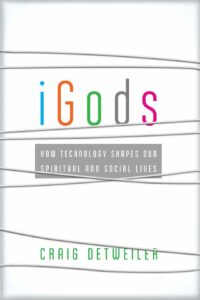 iGods: How Technology Shapes Our Spiritual and Social Lives Craig Detweiler (Brazos Press) $22.00 / OUR SALE PRICE = $17.60
iGods: How Technology Shapes Our Spiritual and Social Lives Craig Detweiler (Brazos Press) $22.00 / OUR SALE PRICE = $17.60
Q Schultze (Habits of the High-Tech Heart) says this is “a wonderfully engaging romp through the largely American hills and valleys where theology and technology meet — a splendid contribution.” Robert Johnston (a film studies scholar) says “Craig Detweiler is one of the best at interlacing theology and popular culture.” Even little children have digital devices now, and many nearly worship their igods. This is a great, serious read, helping us get a framework and handle on grappling with the forces of our day and all it means for our flourishing humanity.
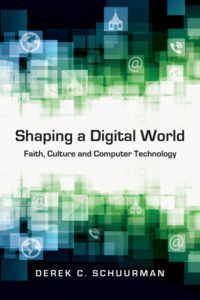 Shaping a Digital World: Faith, Culture and Computer Technology Derek C. Schuurman (IVP Academic) $20.00 / OUR SALE PRICE = $16.00
Shaping a Digital World: Faith, Culture and Computer Technology Derek C. Schuurman (IVP Academic) $20.00 / OUR SALE PRICE = $16.00
If I were asked for just one book for a young person fascinated with or considering a career in computer technologies, this would doubtlessly be the book I’d recommend first. It is all about what “bits and bytes” have to do with Christian beliefs and how computer science can be developed and practiced in a balanced, thoughtful way. There are lots of aspects to consider, of course, besides the exact art making technology, since also the high-tech world has “substantial legal, ethical, political, social, and other nontechnical implications.” A wise computer scientist has to “avoid reductionism and respect the diversity and complexity in God’s creation.”
As Jamie Smith notes, it is “neither reactionary dismissal nor uncritical embrace.” Schuurman roots technology in a biblical theology of culture and is alert to how the field of technical cyber stuff can actually be a fulfilling vocation, under God’s guidance. He brings just the right tone to this fabulous book.
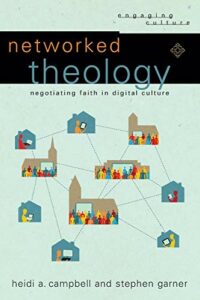 Networked Theology: Negotiating Faith in a Digital Culture Heidi Campbell and Stephen Garner (Baker Academic) $22.99 / OUR SALE PRICE = $18.39
Networked Theology: Negotiating Faith in a Digital Culture Heidi Campbell and Stephen Garner (Baker Academic) $22.99 / OUR SALE PRICE = $18.39
Over the last decade this publisher did a good number of groundbreaking and often cutting edge books about contemporary culture. Some were excellent, but predictable, studies on film, music, the arts. A few were deeper and fascinating, rare, even. Networked Theology seemed to me at the time to be so nearly unique that I was struck, even if (surprise, surprise) it didn’t sell well in our store. I want to give it a large shout out here; it is what Mary Hess of Luther Seminary called “thoughtful, compelling, and substantial.” Kathryn Reklis (of Fordham University and the New Media Project at Christian Theological Seminary, says that its theologically-engaged reflection on digital culture are written with “wisdom, learning, and passion” and that Campbell and Garner are a “dream team” to tackle this topic. Campbell is a communications prof at Texas A&M and author of an older, pioneering work, Exploring Religious Community Online while Garner is a theologian and public speaker from New Zealand. It is deep and thoughtful, a “sustained assessment of contextual and public theology for living in and against Web 3.0.”
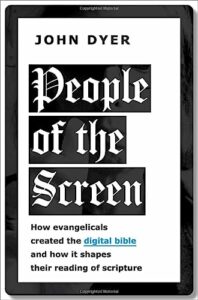 People of the Screen: How Evangelicals Created ‘The Digital Bible’ and How It Shapes Their Reading of Scripture John Dyer (Oxford University Press) $29.95 / OUR SALE PRICE = $23.96
People of the Screen: How Evangelicals Created ‘The Digital Bible’ and How It Shapes Their Reading of Scripture John Dyer (Oxford University Press) $29.95 / OUR SALE PRICE = $23.96
Dyer has been active in digital content creation and has spoken at events reflecting theologically on the good and bad of the cyber world. He wrote the excellent, accessible From the Garden to the City, showing how human stewardship of technological possibility is part of the redemptive story. He’s well suited to have done this remarkable bit of investigative history, storytelling, and pondering of the long-term consequences of this newer way of engaging the Biblical text. Screens. Whew! This looks really, really good, and very important, if you ask me.
Digital Bibles aren’t just the wave of the future. They’re the past and the present. And their growing use has tremendous implications for Christian publishing, worship, training, and devotional experience. With a rare combination of beautiful prose and a programmer’s expertise, John Dyer explores the fascinating history (longer than you think) of digital Bibles, where they fit in the Christian publishing economy, and their future influence on the Christian church. This is a must-read book for every serious student of ‘the Bible’ in all its various forms. — Samuel L. Perry, Professor of Sociology and Religious Studies, University of Oklahoma
Dyer’s clear and engaging narrative style, combined with his self-reflexive critical thinking on what drives evangelicals towards missional technological innovation, makes this a highly readable and timely book. Dyer’s work demonstrates the importance of identifying and unpacking the ideological and theological platforms that motivate religious technological endeavors, as well as how these roots frame public and communal perceptions of the Bible in a digital society. This is a must read for scholars of media, religion and culture and those seeking to understand evangelical discourse and influence in contemporary culture. — Heidi A Campbell, Professor of Communication, Texas A&M University
 Life in Code: A Personal History of Technology Ellen Ullman (FSG) $27.00 / OUR SALE PRICE = $21.60
Life in Code: A Personal History of Technology Ellen Ullman (FSG) $27.00 / OUR SALE PRICE = $21.60
This is a book that is not as well known as it ought to be, done by an important writer on a prestigious publishing house, with rave reviews that are solid and enticing. (Sherry Turkle, Anna Wiener in The New Republic, Laura Miller in Salon, Constance Hale in Wired have all offered luminous blurbs.) Pulitzer-Prize winning novelist Geraldine Brooks says that Ullman “writes unsparingly of the vivid, compelling, emotionally-driven souls who give us our new machines.”
Ms Ullman is a seasoned software engineer, so has her high-tech bona fides (as Hale put it) but, she is also a deep thinker, a fine writer, and a personal storyteller, sharing her work with a set of “savvy reflections about the unfolding of digital culture as it became mainstream culture and we all learned to live with its aesthetic, values, and politics.” The New York Times noted that this book shows a woman who is “facing down ‘obsolescence’ in two different, particularly unforgiving worlds — modern tech and modern society.”
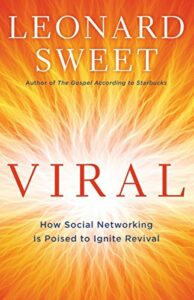 Viral: How Social Networking Is Poised to Ignite Revival Leonard Sweet (Waterbrook) $14.99 / OUR SALE PRICE = $11.99 while supplies last
Viral: How Social Networking Is Poised to Ignite Revival Leonard Sweet (Waterbrook) $14.99 / OUR SALE PRICE = $11.99 while supplies last
I would be remiss not to list this energetic and provocative book — Sweet is always a very fun writer and this was right in his wheelhouse, to use an old-fashioned, industrial term. It went out of print (although we have one or two here for those who might appreciate his charm and wit.) This was an early invitation (written in s 2011) asking us to consider using TGIF for Christ. That is, Twitter, Google, iPhones and Facebook. He’s always been clever like that, but the insight is deeply drawn, with tons of fascinating footnotes, and a boatload of end-of-chapter interactive – websites to visit, stuff to do, experiments to undertake. What a blast.
Of course, as it says even on the back cover, “The gospel is nothing without relationship.” But get this: he asserts that “No one gets it like the Google Generation.” He shows how the incessant texting and IM-ing and updating statuses hints at a deep longing for connection and with our God-given desire to be known and to connect in meaningful ways, modern tech can be a boon, even for those distant from the organized church.
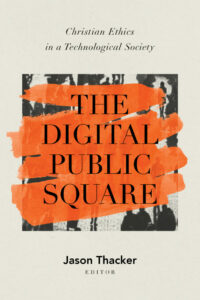 The Digital Public Square: Christian Ethics in a Technological Society edited by Jason Thacker (B+H) $34.99 / OUR SALE PRICE = $27.99
The Digital Public Square: Christian Ethics in a Technological Society edited by Jason Thacker (B+H) $34.99 / OUR SALE PRICE = $27.99
This book is new, but, to be honest, less about the philosophy of technology or the nature of cyberspace or how to Christianly imagine the ups and downs of life online. This is actually a very astute book, serious and up-to-date, about policy questions, about what thoughtful Christian thinkers (most conservative evangelicals) have to offer about a just resolution of some of the thorny questions about media censorship, religious freedom, the prevalence of online conspiracy theories, the ethics of tweeting. Our friend Bonnie Kristian has a very carefully considered piece on banning online pornography.
Very thoughtful, considerate, and sharp friends and authors have glowing endorsements — Dru Johnson says, “Each essay simultaneously taught and challenged me in surprising ways” and Matthew Kaemingk notes that we “desperately need a public theology to guide” our engagement with such principalities and powers.
A FEW ABOUT THE CHURCH
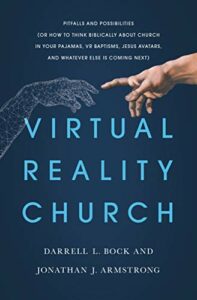 Virtual Reality Church: Pitfalls and Possibilities (Or How to Think Biblically About Church in Your Pajamas, VR Baptisms, Jesus Avatars, and Whatever Else Is Coming Next) Darrel Bock & Jonathan Armstrong (Moody Publishers) $15.99 / OUR SALE PRICE = $12.79
Virtual Reality Church: Pitfalls and Possibilities (Or How to Think Biblically About Church in Your Pajamas, VR Baptisms, Jesus Avatars, and Whatever Else Is Coming Next) Darrel Bock & Jonathan Armstrong (Moody Publishers) $15.99 / OUR SALE PRICE = $12.79
This book, interestingly, was imagined long before the Coronavirus swept us all into Zoom and other such platforms. The authors were interested in augmented or virtual realities even before Moodle and Canvas and Google Hangouts became essential for most of us. But the Covid pandemic speeded up their study of VR technology and, as culturally aware evangelical leaders, they dug quickly into their assessment of how to harness the power of new media for the gospel. From pretty obvious digital streaming projects to VR baptisms, this book is a fabulous starter for conversations about how this tech stuff gets used in our churches. It has good studies of basic Christian themes — God, creation, new creation, incarnation and Pentecost — alongside studies of the nature of virtuality. This is not the last word on this vital church and missional topic, but it would be a fine start.
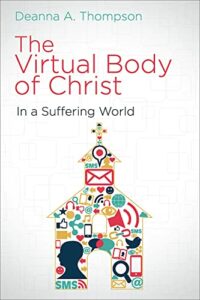 The Virtual Body of Christ in a Suffering World Deanna A. Thompson (Abingdon Press) $21.99 / OUR SALE PRICE = $17.59
The Virtual Body of Christ in a Suffering World Deanna A. Thompson (Abingdon Press) $21.99 / OUR SALE PRICE = $17.59
It isn’t every thoughtful Christian book that gets a rave review by Krista Tippett, the executive producer and host of public radio’s On Being show. She calls it “beautiful, engaging, and original work of twenty-first century public theology.” Thompson (who is a professor of religion at Hamline University in St. Paul) call us to, in Tippett’s words, “name and explore our digital lives as new spheres that also call us more deeply into community and care, illuminating the variety meaning of incarnation.”
This book is one of the best on this topic and we highly recommend it.
It might be said that evangelical megachurches often embrace the new digital opportunities wholeheartedly while more traditional mainline churches often seem hesitant and overwhelmed, even by the need for an interactive website, a Facebook page and a twitter feed. This book, groundbreakingly published in 2016, accepts digital connectivity as our reality, but presents a vision of how faith communities can utilize technology to better be the body of Christ to those who are hurting while also helping followers of Christ think critically about the limits of our digital attachments.
We have authors aplenty warning us that the web is making us stupider. But Deanna Thompson shows unmistakably that there are possibilities in the digital revolution for being the church in ways that the faithful cannot ignore. She shows that the virtual body of Christ can, surprisingly, make us more incarnational. The book is a delight and a model for how theology should be done. — Jason Byassee, author of Following: Embodied Discipleship in a Digital Age
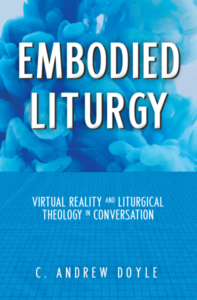 Embodied Liturgy: Virtual Reality and Liturgical Theology in Conversation C. Andrew Doyle (Church Publishing) $24.95 / OUR SALE PRICE = $19.96
Embodied Liturgy: Virtual Reality and Liturgical Theology in Conversation C. Andrew Doyle (Church Publishing) $24.95 / OUR SALE PRICE = $19.96
Doyle is the ninth bishop of the Episcopal Diocese of Texas and he has written fine books about our public lives, callings, and service in God’s church and world. Here is a “well-researched and thoughtful study about both virtual reality and liturgy, arguing that “the Eucharist is not a formulaic rehearsal of words and rituals but an embodied and lived experience that requires a shared place and presence.” This context of the ritual, of course, includes people, objects, words, and all sorts of nuance, so, obviously, on-line worship is something to be explored with great care.
The Most Rev. Michael Curry (Presiding Bishop of the Episcopal Church) notes that “Andy Doyle approaches questions of virtual Eucharist with the same dignity and care to which he calls any who would dare to engage in deeper conversation about this complex and at times emotionally charged topic. This book is one that undoubtedly will be an important resource for years to come.”
The Rev. Dr. Kate Sonderegger (of Virginia Theological Seminary) says that Bishop Doyle “has brought the full compass of contemporary thought to bear on the controverted question of virtual Eucharist.” “This,” she says, “is the generous intellectual landscape that is needed for the theological questions bearing down on the church in this time of pandemic.”
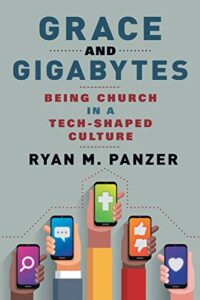 Grace and Gigabytes: Being Church in a Tech-Shaped Culture Ryan M. Panzer (Fortress) $17.99 / OUR SALE PRICE = $14.39
Grace and Gigabytes: Being Church in a Tech-Shaped Culture Ryan M. Panzer (Fortress) $17.99 / OUR SALE PRICE = $14.39
This offers a picture of current digital ministry and is really helpful just to see how cutting edge churches are experiencing digital spaces for worship, community-building, and mission. Panzer is not unaware of shifts in culture that have “heightened amid accelerated adoption and use of digital media” and reminds us that all revolutions in technology have disrupted cultures. Yet, at this intersection of faith, technology, culture and church, we must explore faithful ways to do ministry “aligned to this cultural moment.” With very impressive stories of the philosophical pivots brought on by tech patterns — he, himself, has been involved as teacher and designer in the tech industry. New high-tech mission is merely not about starting a new website or social media page but taking conversations about the deeper philosophical pivots needed.
In many ways, this is less about social media as such and seems perhaps more interested in what has been learned from those specializing in on-line learning and hybrid work cultures. It is about, as Mary Hall of Luther Seminary puts it on her back-cover endorsement, “entanglement” as a gift, not an obstacle.”
BOOKS ABOUT ARTIFICIAL INTELLIGENCE
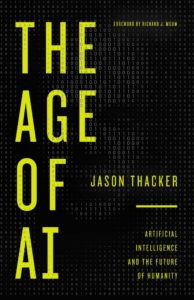 The Age of AI: Artificial Intelligence and the Future of Humanity Jason Thacker (Zondervan) $22.99 / OUR SALE PRICE = $18.39
The Age of AI: Artificial Intelligence and the Future of Humanity Jason Thacker (Zondervan) $22.99 / OUR SALE PRICE = $18.39
The always reliable Richard Mouw wrote the good forward to this thoughtful but readable book by a scholar at the Ethics and Religious Liberty Commission of the SBC. Start here on this topic.
No ethical issues keeps me up at night as does the question of artificial intelligence. This book is a balm for anxiety in the age of technological disruption. The years ahead will require wise Christians in a time of smart robots. This book shows the way. — Russell Moore
 2084: Artificial Intelligence and the Future of Humanity John Lennox (Zondervan) $19.99 / OUR SALE PRICE = $15.99
2084: Artificial Intelligence and the Future of Humanity John Lennox (Zondervan) $19.99 / OUR SALE PRICE = $15.99
This is a compact sized hardback full of readable but often brilliant insights by a UK thought leader with three doctorates; he is a retired professor of advanced Mathematics at Oxford and a renowned writer about faith and science and reasonable apologetics. Here he invites us to get involved in the discussion about where artificial intelligence and technology are going. This is a great introduction for most of us, explaining the “kaleidoscope of ideas” and key developments in technology enhancement and the like.
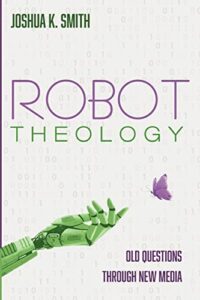 Robot Theology: Old Questions Through New Media Joshua Smith (Resource Publications) $21.00 / OUR SALE PRICE = $16.80
Robot Theology: Old Questions Through New Media Joshua Smith (Resource Publications) $21.00 / OUR SALE PRICE = $16.80
This has gotten some acclaim but I have not looked much at it yet. It seems fairly serious — we have it, but I’ve only skimmed it briefly. One of the back cover endorsements notes that while there has been a lot written on robots and ethics there has not been much on robotics and theology. It certainly appears to be a carefully written, reasonable survey with tons of footnotes (and, in the bibliography, a rare citation of Creation Regained by our old friend Al Wolters.) This may be a bit arcane for some, but it is a study of the major issues surrounding the conversations from a theological and philosophical lens.
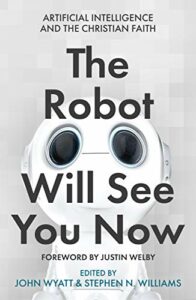 The Robot Will See You Now: Artificial Intelligence and the Christian Faith edited by John Wyatt & Stephen N. Williams (SPCK) $22.99 / OUR SALE PRICE = $18.39
The Robot Will See You Now: Artificial Intelligence and the Christian Faith edited by John Wyatt & Stephen N. Williams (SPCK) $22.99 / OUR SALE PRICE = $18.39
Imported from the UK, this book has a foreword by Justin Welby and, to be honest, looks just tremendous. This gathering of remarkable pieces, by Christians from all over the globe, ask if human beings, made in God’s image, can flourish in a world of intelligent machines. This explores, sometimes with arresting insights, how AI might be useful in health care, employment, security, the arts, and even intimate relationships and spirituality.
Authors include a diverse crew, from Wade Center co-director (and semiotics scholar) Crystal Downing, the wise bioethicist and public policy advocate Nigel Cameron, writer and English professor at Wheaton Christian Bieber Lake, Sri Lankan scholar and activist, Vinoth Ramachandra, theologian of computers Noreen Herzfeld and many more. There is a computer scientist from Cambridge and the Austrian Qua Vadas think-tank leader Andrej Turkanki. What a great and wide-ranging resource.
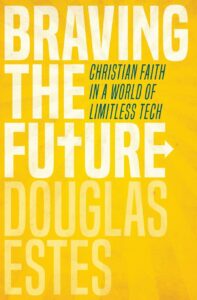 Braving the Future: Christian Faith in a World of Limitless Tech Douglas Estes (Herald Press) $16.99 / OUR SALE PRICE = $13.59
Braving the Future: Christian Faith in a World of Limitless Tech Douglas Estes (Herald Press) $16.99 / OUR SALE PRICE = $13.59
I really enjoyed this and appreciated his approach which is clear that modern tech isn’t in principle bad but it can be troubling and we have to think of a way to be “in but not of” the high tech world. I appreciate its upbeat writing and wit, his concern without being overly alarmist. It looks at artificial intelligence, virtual reality, cybernetics, and such, asking if our theology is ready for this stuff, coming, as Estes puts it, “at a blistering pace.” He’s a good writer and a thoughtful guide.
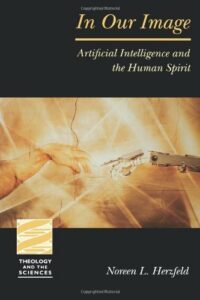 In Our Image: Artificial Intelligence and the Human Spirit Noreen Herzfeld (Fortress) $24.00 / OUR SALE PRICE = $19.20
In Our Image: Artificial Intelligence and the Human Spirit Noreen Herzfeld (Fortress) $24.00 / OUR SALE PRICE = $19.20
This may seem dated, I suppose, as AI was in its earliest days when she wrote this, but the foundation of it is brilliant and timeless. In Our Image examines several different “models” or approaches that theologians have taken to describe what we mean by being in the “image of God” as humans, and then asks how that particular model or perspective would handle AI. Each sort of assumption about the imago Dei allows for or constrains or informs various approaches to AI. Right on! This is good, foundational stuff to get us thinking in the right way.
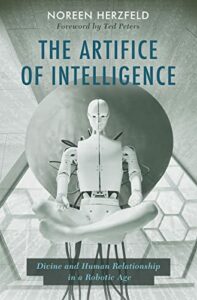 The Artifice of Intelligence: Divine and Human Relationship in a Robotic Age Noreen Herzfeld (Fortress Press) $34.00 / OUR SALE PRICE = $27.20
The Artifice of Intelligence: Divine and Human Relationship in a Robotic Age Noreen Herzfeld (Fortress Press) $34.00 / OUR SALE PRICE = $27.20
As noted above, Herzfeld, a theologian and computer scientist, has long been interested in generative ways to think about the way theological notions can shape our work in the digital world. Now she is asking — as is nearly everyone, it seems — if it is “possible for human beings to have authentic relationships with an AI? How does the increasing presence of AI change the way humans relate to one another? In pursuing answers to these questions, Herzfeld explores what it means to be created in the image of God and to create AI in our own image.” Whew.
 Artificial Intelligence and the Apocalyptic Imagination – Artificial Agency and Human Hope Michael J. Paulus (Cascade) $23.00 / OUR SALE PRICE = $18.40
Artificial Intelligence and the Apocalyptic Imagination – Artificial Agency and Human Hope Michael J. Paulus (Cascade) $23.00 / OUR SALE PRICE = $18.40
This is brand new and I have yet to peruse it, but Paulus has been a respected writer (having compiled a useful anthology a year ago) and is Assistant Provost for Educational Technology, and Professor of Information Studies at Seattle Pacific University. It looks heavy.
Here is how the publisher describes this new work:
The increasing role and power of artificial intelligence in our lives and world requires us to imagine and shape a desirable future with this technology. Since visions of AI often draw from Christian apocalyptic narratives, current discussions about technological hopes and fears present an opportunity for a deeper engagement with Christian eschatological resources. This book argues that the Christian apocalyptic imagination can transform how we think about and use AI, helping us discover ways artificial agency may participate in new creation.
Here’s a recommendation from scholar and ethics professor, emeritus, Ron Cole-Turner of Pittsburgh Theological Seminary:
If you haven’t been paying attention to artificial intelligence, it’s time to start! A highly readable book with clear, nontechnical summaries of the latest expert thinking about artificial intelligence cast within the broad sweep of human civilization. Sobering, enlightening, at times bordering on the frightening, but never without hints of hope that perhaps, just perhaps, we humans will learn to live with and control our greatest invention, this runaway called artificial intelligence.
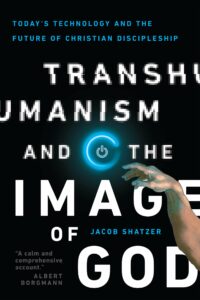 Transhumanism and the Image of God: Today’s Technology and the Future of Christian Discipleship Jacob Shatzer (IVP Academic) $25.00 / OUR SALE PRICE = $20.00
Transhumanism and the Image of God: Today’s Technology and the Future of Christian Discipleship Jacob Shatzer (IVP Academic) $25.00 / OUR SALE PRICE = $20.00
We have a number of other provocative titles on what is being called transhumanism — the melding of smart technology and humans into what the sci-fi material, (before it has now become real), cyborgs. I don’t quite know what to think about them all, but do write to us if you want a short list of others. For now, I’ll just list this one since it has chapters on AI, virtual reality, robotics, and other radical technologies that will change the very way humans are known. Our gadgets continue to change, but will we stay essentially the same? It is now an open question.
This is a cautious and aware study by an evangelical Biblical ethicist that claims to offer “firm footing on a slippery slope.” What will Christian faithfulness look like in this new era? How might this effect our notions of formation and discipleship? He unpacks the doctrine of incarnation and helps us think about technology today and what we might become. This is a great starting place for this complicated topic.
PRACTICAL BOOKS ABOUT NAVIGATING THE DIGITAL CULTURE
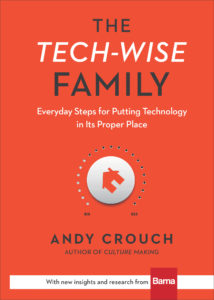 The Tech-Wise Family: Everyday Steps for Putting Technology in Its Proper Place Andy Crouch (Baker) $16.99 / OUR SALE PRICE = $13.59
The Tech-Wise Family: Everyday Steps for Putting Technology in Its Proper Place Andy Crouch (Baker) $16.99 / OUR SALE PRICE = $13.59
This is a compact sized hardback that nicely walks readers through research done by the Barna Group on the impact of social media and screens and digital stuff upon ordinary Americans, especially church-goers. Andy deftly interprets the data, fills in some information about the handsome little charts and graphics, and then offers incredibly astute, easy-to-follow, adaptable principles for being wise with our phones and computers. I am sure you have devices that are incredibly helpful and yet leave their mark in concerning ways. This book wisely helps you navigate these brave new worlds. It’s a great little book and very highly recommended. I think it is the most important small book on the topic and if you want a good starter guide, to this arena, this is the one.
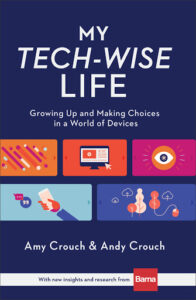 By the way, his then-teen daughter, Amy Crouch, heading off to college, wrote a nice afterward that expressed what it was like growing up with the guidelines of her parents in a tech-wise family. This then led to her writing her own little hardback, a companion to The Tech-Wise Family called My Tech-Wise Life: Growing Up and Making Choices in a World of Devices (Baker Books; $15.99 / OUR SALE PRICE = $12.79) Andy, as proud father and seriously eloquent writer, weighs in a bit, making this a spirited dialogue between a father and daughter. If you know any open-minded teens or college students, you have to get them this book. Yes!
By the way, his then-teen daughter, Amy Crouch, heading off to college, wrote a nice afterward that expressed what it was like growing up with the guidelines of her parents in a tech-wise family. This then led to her writing her own little hardback, a companion to The Tech-Wise Family called My Tech-Wise Life: Growing Up and Making Choices in a World of Devices (Baker Books; $15.99 / OUR SALE PRICE = $12.79) Andy, as proud father and seriously eloquent writer, weighs in a bit, making this a spirited dialogue between a father and daughter. If you know any open-minded teens or college students, you have to get them this book. Yes!
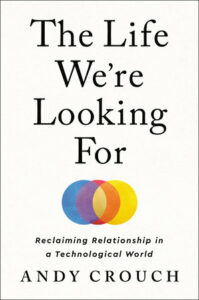 The Life We’re Looking For: Reclaiming Relationship in a Technological World Andy Crouch (Convergent) $25.00 / OUR SALE PRICE = $20.00
The Life We’re Looking For: Reclaiming Relationship in a Technological World Andy Crouch (Convergent) $25.00 / OUR SALE PRICE = $20.00
This much fuller outworking of Andy’s concerns was one of my favorite books last year (on any topic) and, as always for Andy’s major works, it is simply a must read. It is what Tish Harrison Warren calls “breathtaking” and what the Stanford Life Design Lab guru calls “an artful deep dive into the true nature of persons.” Sherry Turkle (of MIT) says it is written with “warmth and erudition” — clever, profound, glorious. I like the quip by historian Tom Holland (author of Dominion) who, playing off an older book title, says it could be called The Holy Ghost in the machine. It is a beautiful book, inviting us to a more thoughtful and beautiful life.
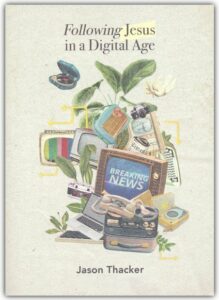 Following Jesus in a Digital Age Jason Thacker (B+H) $12.99 / OUR SALE PRICE = $10.39
Following Jesus in a Digital Age Jason Thacker (B+H) $12.99 / OUR SALE PRICE = $10.39
I will list this compact sized paperback early in this section of more practical sorts of books that offer guidance for ordinary users in part because I respect Thacker as a serious thinker (see his book on AI, listed above, and the one he edited on social policy in the digital space) and for how he summarizes much of the serious considerations about this field into a short, if weighty, small volume. This great book is challenging yet encouraging; it is not simplistic but it is clear. We need discernment and wisdom — you may not even realize how much you need it until you start reading a sharp study like this.
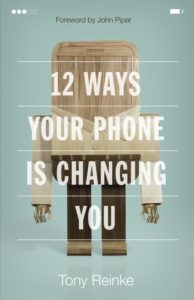 12 Ways Your Phone Is Changing You Tony Reinke (Crossway) $16.99 / OUR SALE PRICE = $13.59
12 Ways Your Phone Is Changing You Tony Reinke (Crossway) $16.99 / OUR SALE PRICE = $13.59
I like that Reinke has studied the topic well and that he is not utterly negative about smart devices; he has a good book on why Christians should read classic literature, so, again, he is a very sharp dude. This is just a bit negative and alarmist, but how can it not be? He documents these twelve potent ways a smartphone (for better or worse) causes us to experience life in different ways. It is interesting and mostly right and deeply wise in its calling us to cultivate Godly habits for the digital age. I like the line from hip-hop artist Jackie Hill Perry who writes that 12 Ways… is “a necessary book for our generation, to remind us that our phone habits will either amplify or get in the way of our most important longing of all: the soul-satisfying glory of our Savior.”
Listen to the prestigious historian George Marsden, who says:
Are Christians using technology to transform the world or is technology transforming Christians in unhealthy ways? Especially since the era of Franklin and Jefferson, when inventing things and technological ways of organizing things became a way of life, Christians have needed to be alert to such questions. Tony Reinke’s reflections on the smartphone offer helpful advice as to how people today need to be vigilant regarding the impact of their favorite new technologies. — George Marsden, Professor of History Emeritus, University of Notre Dame; The Outrageous Idea of Christian Scholarship
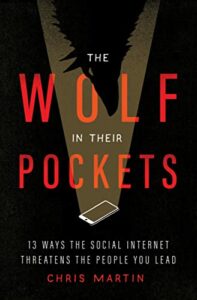 A Wolf in Their Pockets: 13 Ways the Social Internet Threatens the People You Lead Chris Martin (Moody Publishers) $16.99 / OUR SALE PRICE = $13.59
A Wolf in Their Pockets: 13 Ways the Social Internet Threatens the People You Lead Chris Martin (Moody Publishers) $16.99 / OUR SALE PRICE = $13.59
The author has a Bible degree, has run a social media think-tank for a major publisher, and is now an editor of BibletoLife, a marketing project at Moody Publishers. He knows his stuff, is a good, clear, writer, and here offers much of what we need to know about the incredible ways social media influences us. It is written for pastors, campus ministers, parents, youth workers, spiritual directors, Christian teachers and others who are hoping to mentor others into an obedient and fruitful life of faith. This isn’t a fad and while shepherding and leading others has never been easy, there are these new challenges.
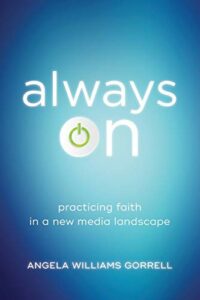 Always On: Practicing Faith in a New Media Landscape Angela Williams Gorrell (Baker Academic) $22.99 / OUR SALE PRICE = $18.39
Always On: Practicing Faith in a New Media Landscape Angela Williams Gorrell (Baker Academic) $22.99 / OUR SALE PRICE = $18.39
Okay, this is a bit heavy and just over 180 well footnoted pages. But it really is practical, a very helpful guide to “social media literacy for Christian communities.” As Andrew Root notes, “This book couldn’t be more timely.” Danna Thompson (author of The Virtual Body of Christ, mentioned above) says that Gorrell “offers a compelling Christian vision of the good life within the landscape of new media.” Can we live a hybrid sort of existence that reflects God’s love for all? Can we find new ways to use our devices well? Chap Clark — a well known writer and speaker of youth ministry resources — raves. Pastor Joy Moore says it is “fresh, contemporary and practical” even if rooted in a first century call to discipleship. It’s a very thorough, useful book.
Angela Gorrell is a professor of practical theology at George W. Truett Theological Seminary, at Baylor University, although she previously served with Miroslav Volf at the Yale Center for Faith and Culture. You may know that we raved about her fabulous, moving memoir The Gravity of Joy: A Story of Being Lost and Found.
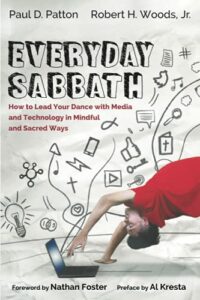 Everyday Sabbath: How to Lead Your Dance with Media and Technology in Mindful and Sacred Ways Paul Patton and Robert Woods, Jr. (Cascade Books) $23.00 / OUR SALE PRICE = $18.40
Everyday Sabbath: How to Lead Your Dance with Media and Technology in Mindful and Sacred Ways Paul Patton and Robert Woods, Jr. (Cascade Books) $23.00 / OUR SALE PRICE = $18.40
These two extraordinary authors have spent a lifetime (teaching communications and media) with college students, one at Spring Arbor University in Michigan, indicating some Wesleyan roots. Free Methodist leader and author Howard Snyder calls it “a brilliant and thoroughly delightful work” while Calvin Troup, president of the Reformed Presbyterian institution of higher learning in Western Pennsylvania, Geneva College, considers it “loving resistance-in-practice through an ancient and now-alien principle — Sabbath.” This “dance” book provides a bit of tech study and a bit of media ecology and is almost like a devotional with thought-provoking reflection questions, pull quotes, citations, and the like, nurturing a playful sort of mindfulness that helps us with our affections and habits.
TO PLACE AN ORDER
PLEASE READ, THEN SCROLL DOWN AND CLICK ON THE “ORDER HERE” LINK BELOW.
It is very helpful if you tell us how you prefer us to ship your orders.
The weight and destination of your package varies but you can use this as a quick, general guide:
There are generally two kinds of US Mail options, and, of course, UPS. If necessary, we can do overnight and other expedited methods, too. Just ask.
- United States Postal Service has the option called “Media Mail” which is cheapest but can be slow. For one typical book, usually, it’s about $3.85; 2 lbs would be $4.55.
- United States Postal Service has another option called “Priority Mail” which is $8.50, if it fits in a flat rate envelope. Many children’s books and some Bibles are oversized so that might take the next size up which is $9.20. “Priority Mail” gets much more attention than does “Media Mail” and is often just a few days to anywhere in the US.
- UPS Ground is reliable but varies by weight and distance and may take longer than USPS. We’re happy to figure out your options for you once we know what you want.
If you just want to say “cheapest” that is fine. If you are eager and don’t want the slowest method, do say so. It really helps us serve you well so let us know. Just saying “US Mail” isn’t helpful because there are those two methods, one cheaper but slower, one more costly but quicker. Which do you prefer?
And don’t forget to tell us how you want to pay, check or credit card. We need to know.
BookNotes

SPECIAL
DISCOUNT
20% OFF
ALL BOOKS MENTIONED
this takes you to the secure Hearts & Minds order form page
just tell us what you want to order
if you have questions or need more information
just ask us what you want to know
Hearts & Minds 234 East Main Street Dallastown PA 17313
read@heartsandmindsbooks.com
717-246-3333
Sadly, we are still closed for in-store browsing. COVID is not fully over. Since few are reporting their illnesses anymore, it is tricky to know the reality but the best measurement is to check the water tables to see the amount of virus in the eco-system. It’s important to be particularly aware of how risks we take might effect the public good. It is complicated for us, so we are still closed for in-store browsing due to our commitment to public health (and the safety of our family, staff, and customers.) The vaccination rate here in York County is sadly lower than average. Our store is a bit cramped without top-notch ventilation, so we are trying to be wise.
We will certainly keep you posted about our future plans… we are eager, but delayed, for now.
We are doing our famous curb-side and back yard customer service and can show any number of items to you if you call us from our back parking lot. It’s sort of fun, actually. We are eager to serve and grateful for your patience as we all work to mitigate the pandemic. We are very happy to help, so if you are in the area, do stop by. We love to see old friends and new customers.
Of course, we’re happy to ship books anywhere.
We are here 10:00 – 6:00 EST / Monday – Saturday. Closed on Sunday.
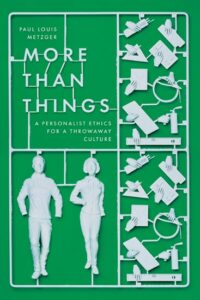 More Than Things: A Personalist Ethics for a Throwaway Culture Paul Louis Metzger (IVP Academic) $48.00 // OUR SALE PRICE = $38.00
More Than Things: A Personalist Ethics for a Throwaway Culture Paul Louis Metzger (IVP Academic) $48.00 // OUR SALE PRICE = $38.00 We enthusiastically reviewed and continue to take to events where we are selling books his 2011 release, New Wine Tastings: Theological Essays of Cultural Engagement (Cascade Books; $21.00 – OUR SALE PRICE = $16.80) when it came out because it captured much of our overall theme of cultural engagement, learning how, as Christians, we can be involved in but not absorbed by, our surrounding secularized culture. In that nice collection he explores First Nations issues, questions of finding Christ among the homeless, climate change, and more foundational themes, like resisting the culture wars, not living in a “Christian ghetto”, and a generative chapter called “Toward a Theologically Conservative, Compassionately Liberal Faith.” You can imagine we like it. We are fans of his work.
We enthusiastically reviewed and continue to take to events where we are selling books his 2011 release, New Wine Tastings: Theological Essays of Cultural Engagement (Cascade Books; $21.00 – OUR SALE PRICE = $16.80) when it came out because it captured much of our overall theme of cultural engagement, learning how, as Christians, we can be involved in but not absorbed by, our surrounding secularized culture. In that nice collection he explores First Nations issues, questions of finding Christ among the homeless, climate change, and more foundational themes, like resisting the culture wars, not living in a “Christian ghetto”, and a generative chapter called “Toward a Theologically Conservative, Compassionately Liberal Faith.” You can imagine we like it. We are fans of his work.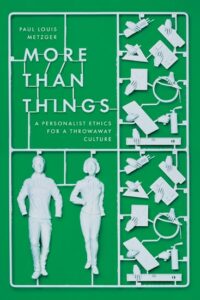
 With that personalist perspective, Metzger doesn’t want to just download the data to Amazon or let some faceless corporation generate algorithmic orders with robotic tech filling “units of sales” (as they call books these days) stuffing them carelessly into boxes speeding down the conveyor belt and out to Sunday delivery without a smile or a prayer. I think it is fair to say that Paul truly wants a more humane and gracious sort of selling experience for his baby — that would be the buying experience for you, friend — so here we are, trying to do old-school mail-order with a smile and as much of a personal touch as we can muster. He knows that for a book promoting a more personal approach to the modern world it makes sense to promote it firstly through businesses he is in relationship with. You can get it at any number of indie bookstores who will care about personalized customer service.
With that personalist perspective, Metzger doesn’t want to just download the data to Amazon or let some faceless corporation generate algorithmic orders with robotic tech filling “units of sales” (as they call books these days) stuffing them carelessly into boxes speeding down the conveyor belt and out to Sunday delivery without a smile or a prayer. I think it is fair to say that Paul truly wants a more humane and gracious sort of selling experience for his baby — that would be the buying experience for you, friend — so here we are, trying to do old-school mail-order with a smile and as much of a personal touch as we can muster. He knows that for a book promoting a more personal approach to the modern world it makes sense to promote it firstly through businesses he is in relationship with. You can get it at any number of indie bookstores who will care about personalized customer service.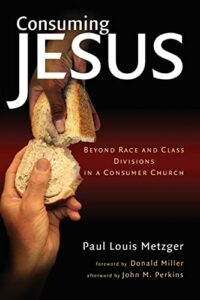 Many years ago Metzger wrote a book called Consuming Jesus: Beyond Race and Class Decisions in a Consumer Church (Eerdmans; now $27.50 — OUR SPECIAL SALE PRICE – $17.00.) We still have some (at the older price) because we really believed in that book. It had a cool Foreword by then-bohemian, then rather anti-capitalist writer Donald Miller and a strong Afterword by the great, black evangelical leader John Perkins. It made the case that a worldview which enshrines consumer preference will, naturally, erode higher and more important ecclesiastical requirements, keeping us stuck in that situation that Martin Luther King called out when he noted that 10:00 o’clock Sunday morning was America’s most segregated hour.
Many years ago Metzger wrote a book called Consuming Jesus: Beyond Race and Class Decisions in a Consumer Church (Eerdmans; now $27.50 — OUR SPECIAL SALE PRICE – $17.00.) We still have some (at the older price) because we really believed in that book. It had a cool Foreword by then-bohemian, then rather anti-capitalist writer Donald Miller and a strong Afterword by the great, black evangelical leader John Perkins. It made the case that a worldview which enshrines consumer preference will, naturally, erode higher and more important ecclesiastical requirements, keeping us stuck in that situation that Martin Luther King called out when he noted that 10:00 o’clock Sunday morning was America’s most segregated hour. 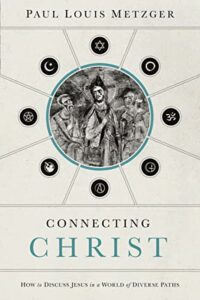 compare or contrast with notions, like, for example, karma.
compare or contrast with notions, like, for example, karma.


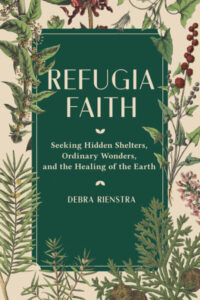
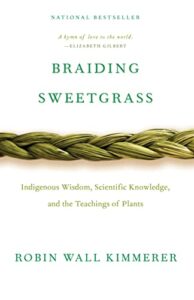 evangelical climate scientist, Katherine Hayhoe, say, and the remarkably beautiful Refugia Faith: Seeking Hidden Shelters, Ordinary Wonders, and the Healing of the Earth by Debra Rienstra, a must-read in my view.) Nature writers include many, many women like Terry Tempest Williams and Annie Dillard and Kathleen Dean Moore (and so many more.) At BookNotes in the last year we’ve promoted the lovely, well-written book Turning of Days: Lessons from Nature, Season and Spirit by Hannah Anderson (published by Moody Press) and I trust that many know the powerful, serious writer Robin Wall Kimmerer, author of the best-selling phenomenon, Braiding Sweetgrass: Indigenous Wisdom , Scientific Knowledge and the Teachings of Plants. These proudly stand alongside classic male nature and natural history writers from Robert MacFarlane to Barry Lopez to J. Drew Lanham, who wrote the nearly luminous
evangelical climate scientist, Katherine Hayhoe, say, and the remarkably beautiful Refugia Faith: Seeking Hidden Shelters, Ordinary Wonders, and the Healing of the Earth by Debra Rienstra, a must-read in my view.) Nature writers include many, many women like Terry Tempest Williams and Annie Dillard and Kathleen Dean Moore (and so many more.) At BookNotes in the last year we’ve promoted the lovely, well-written book Turning of Days: Lessons from Nature, Season and Spirit by Hannah Anderson (published by Moody Press) and I trust that many know the powerful, serious writer Robin Wall Kimmerer, author of the best-selling phenomenon, Braiding Sweetgrass: Indigenous Wisdom , Scientific Knowledge and the Teachings of Plants. These proudly stand alongside classic male nature and natural history writers from Robert MacFarlane to Barry Lopez to J. Drew Lanham, who wrote the nearly luminous 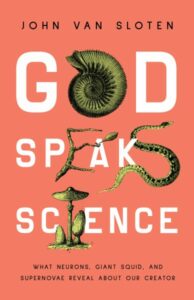 God Speaks Science: What Neurons, Giant Squid, and Supernovae Reveal About Our Creator John Van Sloten (Moody Press) $15.99 OUR SALE PRICE = $12.79
God Speaks Science: What Neurons, Giant Squid, and Supernovae Reveal About Our Creator John Van Sloten (Moody Press) $15.99 OUR SALE PRICE = $12.79 Fen, Bog & Swamp: A Short History of Peatland Destruction and Its Role in the Climate Crisis Annie Proulx (Scribner) $17.99 OUR SALE PRICE = $14.39
Fen, Bog & Swamp: A Short History of Peatland Destruction and Its Role in the Climate Crisis Annie Proulx (Scribner) $17.99 OUR SALE PRICE = $14.39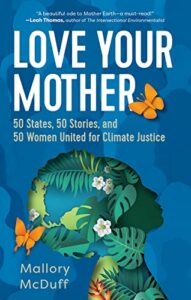 Love Your Mother: 50 States, 50 Stories, and 50 Women United for Climate Justice Mallory McDuff (Broadleaf) $26.99
Love Your Mother: 50 States, 50 Stories, and 50 Women United for Climate Justice Mallory McDuff (Broadleaf) $26.99 Guardians of the Trees: A Journey of Hope Through Healing the Planet Kinari Webb, MD (Flatiron Books) $18.99 OUR SALE PRICE = $15.19
Guardians of the Trees: A Journey of Hope Through Healing the Planet Kinari Webb, MD (Flatiron Books) $18.99 OUR SALE PRICE = $15.19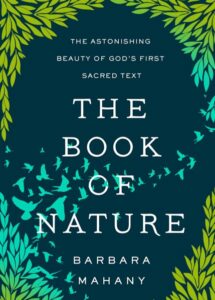 The Book of Nature: The Astonishing Beauty of God’s First Sacred Text Barbara Mahany (Broadleaf Books) $27.99
The Book of Nature: The Astonishing Beauty of God’s First Sacred Text Barbara Mahany (Broadleaf Books) $27.99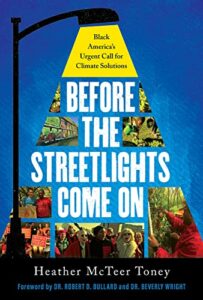 Before the Streetlights Come On: Black America’s Urgent Call for Climate Solutions Heather McTeer Toney (Broadleaf) $24.99
Before the Streetlights Come On: Black America’s Urgent Call for Climate Solutions Heather McTeer Toney (Broadleaf) $24.99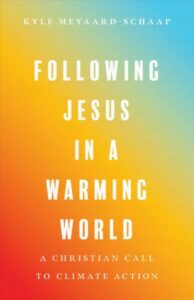 Following Jesus in a Warming World: A Christian Call to Climate Action Kyle Meyaard-Schaap (IVP) $18.00
Following Jesus in a Warming World: A Christian Call to Climate Action Kyle Meyaard-Schaap (IVP) $18.00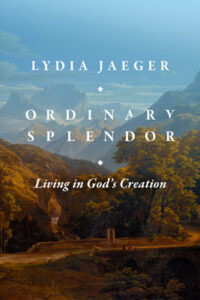 Ordinary Splendor: Living in God’s Creation Lydia Jaeger (Lexham Press) $18.99
Ordinary Splendor: Living in God’s Creation Lydia Jaeger (Lexham Press) $18.99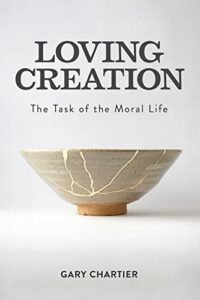 Loving Creation: The Task of the Moral Life Gary Chartier (Fortress Press) $39.00
Loving Creation: The Task of the Moral Life Gary Chartier (Fortress Press) $39.00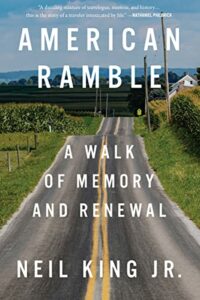 American Ramble: A Walk of Memory and Renewal Neil King, Jr. (Mariner) $32.50
American Ramble: A Walk of Memory and Renewal Neil King, Jr. (Mariner) $32.50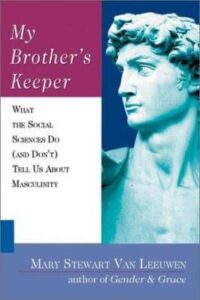 masculinity questioned over filing for conscientious objector status (and trying to be somewhat gentlemanly around the girls I was with) I suggest that these issues have been with me for most of my adult life. Beth and I are still trying to figure it all out.
masculinity questioned over filing for conscientious objector status (and trying to be somewhat gentlemanly around the girls I was with) I suggest that these issues have been with me for most of my adult life. Beth and I are still trying to figure it all out. The Toxic War On Masculinity: How Christianity Reconciles the Sexes Nancy Pearcey (Baker) $24.99
The Toxic War On Masculinity: How Christianity Reconciles the Sexes Nancy Pearcey (Baker) $24.99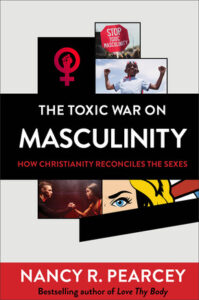 And here’s her plea: we ought not confuse what a “real” man is with what a “good” man is. (Her early explanation of the large, cross-cultural study on this exact matter by Michael Kimmel is quite clarifying.) We need to know how masculinity got so toxic, and insist — in our homes, our churches, and in the public square, she would say — that the toxic version is not the real deal. It is a counterfeit sort of distortion, played out when men and women adopt the secularized script from our post-Christian culture. She is about centering the life-changing power of the gospel and offering a Christian worldview that would make sense of our genders and our sexuality, without adopting goofy gender roles that come more from the culture (from John Wayne, we might say) than from the Bible.
And here’s her plea: we ought not confuse what a “real” man is with what a “good” man is. (Her early explanation of the large, cross-cultural study on this exact matter by Michael Kimmel is quite clarifying.) We need to know how masculinity got so toxic, and insist — in our homes, our churches, and in the public square, she would say — that the toxic version is not the real deal. It is a counterfeit sort of distortion, played out when men and women adopt the secularized script from our post-Christian culture. She is about centering the life-changing power of the gospel and offering a Christian worldview that would make sense of our genders and our sexuality, without adopting goofy gender roles that come more from the culture (from John Wayne, we might say) than from the Bible. I suspect that Nancy attends a church that does not ordain women (I really don’t know) but she is an unashamed advocate for equal rights for women in the public square. She has herself worked in philosophy, public media, the sciences, and is not inclined to take up the typically Southern, evangelical niceties of ladies teas and craft-making retreats. She is a strong, left-brained Christian leader and needs to be heard; she taught the ex-Marine Chuck Colson much of what he knew about a Christian worldview, after all. Her balance and logical approach should appeal to many. Those who want a more progressive sort of manifesto against straight white males without the deeper thinking about it all, really ought to read it, too. Agree fully or not, it is one of the more interesting books on this topic I have seen in quite a while.
I suspect that Nancy attends a church that does not ordain women (I really don’t know) but she is an unashamed advocate for equal rights for women in the public square. She has herself worked in philosophy, public media, the sciences, and is not inclined to take up the typically Southern, evangelical niceties of ladies teas and craft-making retreats. She is a strong, left-brained Christian leader and needs to be heard; she taught the ex-Marine Chuck Colson much of what he knew about a Christian worldview, after all. Her balance and logical approach should appeal to many. Those who want a more progressive sort of manifesto against straight white males without the deeper thinking about it all, really ought to read it, too. Agree fully or not, it is one of the more interesting books on this topic I have seen in quite a while.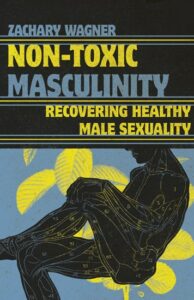 Non-Toxic Masculinity: Recovering Healthy Male Sexuality Zachary Wagner (IVP) $18.00
Non-Toxic Masculinity: Recovering Healthy Male Sexuality Zachary Wagner (IVP) $18.00 In this part of the book he is exceptionally honest about his own struggles with a sense of privilege and rights about sex, even as he came to grapple with that when his wife was herself struggling with hardships that kept her from enjoying sexual intimacies. I had tears in my eyes through some of these pages — I’ve never read anything like this so candid and complicated and finally gracious about one’s marital intimacies and struggles. His writing about sexuality is not singular — there really are others who explore in egalitarian ways about mutually-pleasing sex, but few evangelical writers have done so. Wagner himself cites Jonathan Grant’s heavy 2015 Brazos Press book Divine Sex: A Compelling Vision for Christian Relationships in a Hyper-sexualized Age and he says very good things about The Great Sex Rescue: The Lies You’ve Been Taught and How to Recover What God Intended and other books by Sheila Wray Gregoire.
In this part of the book he is exceptionally honest about his own struggles with a sense of privilege and rights about sex, even as he came to grapple with that when his wife was herself struggling with hardships that kept her from enjoying sexual intimacies. I had tears in my eyes through some of these pages — I’ve never read anything like this so candid and complicated and finally gracious about one’s marital intimacies and struggles. His writing about sexuality is not singular — there really are others who explore in egalitarian ways about mutually-pleasing sex, but few evangelical writers have done so. Wagner himself cites Jonathan Grant’s heavy 2015 Brazos Press book Divine Sex: A Compelling Vision for Christian Relationships in a Hyper-sexualized Age and he says very good things about The Great Sex Rescue: The Lies You’ve Been Taught and How to Recover What God Intended and other books by Sheila Wray Gregoire.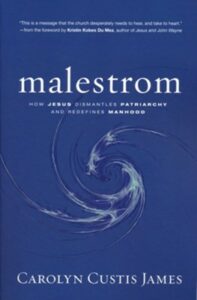 Malestrom: How Jesus Dismantles Patriarchy and Redefines Manhood Carolyn Custis James (Zondervan) $19.99
Malestrom: How Jesus Dismantles Patriarchy and Redefines Manhood Carolyn Custis James (Zondervan) $19.99 Shattered: A Son Picks Up the Pieces of His Father’s Rage Arthur Boers (Eerdmans) $22.99
Shattered: A Son Picks Up the Pieces of His Father’s Rage Arthur Boers (Eerdmans) $22.99 Arthur Boers to this day lives with a sense of remorse, surely regretting that his father would never voice regret. There is father hunger, although his memories are not all bleak. There are tender moments in the book — father and son listening to Dixieland and Louis “Satchmo” Armstrong together and Art (dangerously, I’d say) taking his dad to a Stevie Ray Vaughn concert of rowdy Texas blues. His dad was a hard worker in the family business and it is captivating to hear how Arthur came to tell his mother and father that he was interested in going into the ministry, rather than becoming the “and Son” on the lettering on Papa’s work truck.
Arthur Boers to this day lives with a sense of remorse, surely regretting that his father would never voice regret. There is father hunger, although his memories are not all bleak. There are tender moments in the book — father and son listening to Dixieland and Louis “Satchmo” Armstrong together and Art (dangerously, I’d say) taking his dad to a Stevie Ray Vaughn concert of rowdy Texas blues. His dad was a hard worker in the family business and it is captivating to hear how Arthur came to tell his mother and father that he was interested in going into the ministry, rather than becoming the “and Son” on the lettering on Papa’s work truck.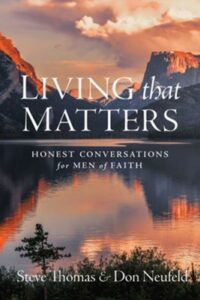 Living That Matters: Honest Conversations for Men of Faith Steve Thomas & Don Neufeld (Herald Press) $18.99
Living That Matters: Honest Conversations for Men of Faith Steve Thomas & Don Neufeld (Herald Press) $18.99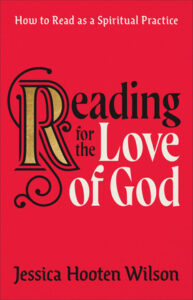 I hope you enjoyed the last two BookNotes — one mostly on novels, and then the more recent one listing books about the reading life and why we must champion reading, study, and learning. I hope you saw that list including the recent Reading for the Love of God by Jessica Hooten Wilson and other such book-nerd resources. If you missed it, it is worth a look. All of our previous BookNotes are archived at our BookNotes section of our webpage.
I hope you enjoyed the last two BookNotes — one mostly on novels, and then the more recent one listing books about the reading life and why we must champion reading, study, and learning. I hope you saw that list including the recent Reading for the Love of God by Jessica Hooten Wilson and other such book-nerd resources. If you missed it, it is worth a look. All of our previous BookNotes are archived at our BookNotes section of our webpage.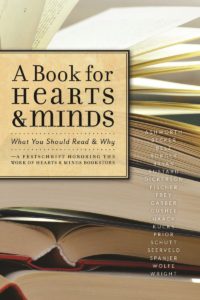 A Book for Hearts & Minds: What You Should Read and Why – A Festschrift Honoring the Work of Hearts & Minds Bookstore edited by Ned Bustard (Square Halo Books) $18.99
A Book for Hearts & Minds: What You Should Read and Why – A Festschrift Honoring the Work of Hearts & Minds Bookstore edited by Ned Bustard (Square Halo Books) $18.99 Here ya go — after my opening piece, in a nice touch, the chapters unfold in bookish alphabetical order:
Here ya go — after my opening piece, in a nice touch, the chapters unfold in bookish alphabetical order: Sea Glass: New and Selected Poems
Sea Glass: New and Selected Poems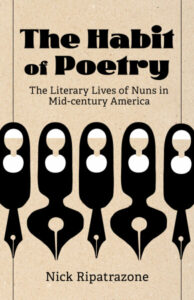 The Habit of Poetry: The Literary Lives of Nuns in Mid-century America Nick Ripatrazone (Fortress) $28.99
The Habit of Poetry: The Literary Lives of Nuns in Mid-century America Nick Ripatrazone (Fortress) $28.99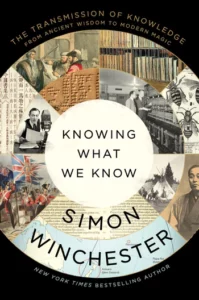 Knowing What We Know: The Transmission of Knowledge From Ancient Wisdom to Modern Magic Simon Winchester (Harper) $35.00
Knowing What We Know: The Transmission of Knowledge From Ancient Wisdom to Modern Magic Simon Winchester (Harper) $35.00 Speaking Peace in a Climate of Conflict Marilyn McEntyre (Eerdmans) $22.99
Speaking Peace in a Climate of Conflict Marilyn McEntyre (Eerdmans) $22.99 Ms. McEntyre has, by the way, a forthcoming new book of her own poetry coming in early October, to be called Midwinter Light: Poems and Reflections for the Long Season which you can pre-order from us now, of course. Broadleaf; $19.99 – OUR SALE PRICE = $15.99.) Just scroll down to the order form link below.
Ms. McEntyre has, by the way, a forthcoming new book of her own poetry coming in early October, to be called Midwinter Light: Poems and Reflections for the Long Season which you can pre-order from us now, of course. Broadleaf; $19.99 – OUR SALE PRICE = $15.99.) Just scroll down to the order form link below.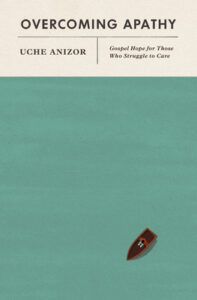 Overcoming Apathy: Gospel Hope for Those Who Struggle to Care Uche Anizor (Crossway) $16.99 OUR SALE PRICE = $13.59
Overcoming Apathy: Gospel Hope for Those Who Struggle to Care Uche Anizor (Crossway) $16.99 OUR SALE PRICE = $13.59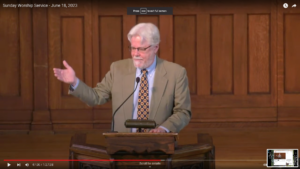 If you’d like you can
If you’d like you can 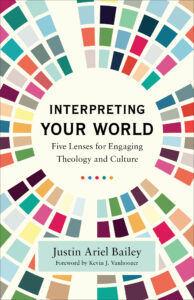 Interpreting Your World: Five Lenses for Engaging Theology and Culture Justin Ariel Bailey (Baker) $21.99
Interpreting Your World: Five Lenses for Engaging Theology and Culture Justin Ariel Bailey (Baker) $21.99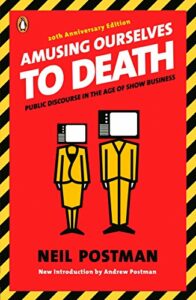 Amusing Ourselves to Death: Public Discourse in the Age of Show Business Neil Postman (Penguin) $17.00
Amusing Ourselves to Death: Public Discourse in the Age of Show Business Neil Postman (Penguin) $17.00 The Shallows: What the Internet Is Doing to Our Brains Nicholas Carr (Norton) $17.95
The Shallows: What the Internet Is Doing to Our Brains Nicholas Carr (Norton) $17.95 Alone Together: Why We Expect More From Technology and Less from Each Other Sherry Turkle (Basic Books) $18.99
Alone Together: Why We Expect More From Technology and Less from Each Other Sherry Turkle (Basic Books) $18.99 The Life We’re Looking For: Reclaiming Relationship in a Technological World Andy Crouch (Convergent) $25.00
The Life We’re Looking For: Reclaiming Relationship in a Technological World Andy Crouch (Convergent) $25.00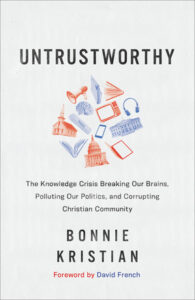 Untrustworthy: The Knowledge Crisis Breaking Our Brains, Polluting Our Politics, and Corrupting Christian Community Bonnie Kristian (Brazos Press) $24.99
Untrustworthy: The Knowledge Crisis Breaking Our Brains, Polluting Our Politics, and Corrupting Christian Community Bonnie Kristian (Brazos Press) $24.99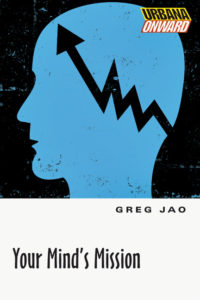 Your Minds Mission Greg Jao (IVP) $8.00 OUR SALE PRICE = $6.40
Your Minds Mission Greg Jao (IVP) $8.00 OUR SALE PRICE = $6.40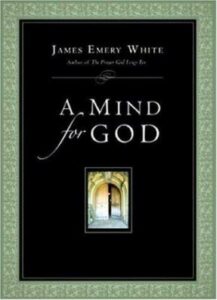 A Mind for God James Emery White (IVP) $17.00
A Mind for God James Emery White (IVP) $17.00 Culture Care: Reconnecting with Beauty for Our Common Life Makoto Fujimura (IVP) $20.00
Culture Care: Reconnecting with Beauty for Our Common Life Makoto Fujimura (IVP) $20.00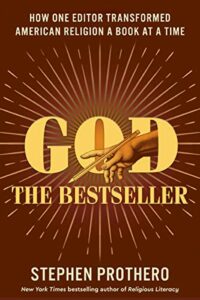 God The Bestseller: How One Editor Transformed American Religion a Book at a Time Stephen Prothero (HarperOne) $32.99
God The Bestseller: How One Editor Transformed American Religion a Book at a Time Stephen Prothero (HarperOne) $32.99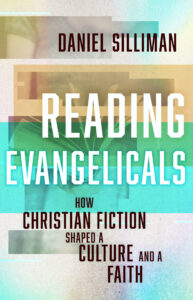 Reading Evangelicals: How Christian Fiction Shaped a Culture and a Faith Daniel Silliman (Eerdmans) $27.99
Reading Evangelicals: How Christian Fiction Shaped a Culture and a Faith Daniel Silliman (Eerdmans) $27.99
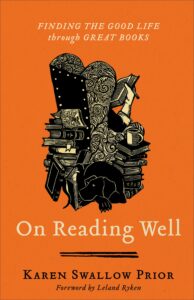 On Reading Well: Finding the Good Life Through Great Books Karen Swallow Prior, with art pieces by Ned Bustard (Brazo Press) $19.99 OUR SALE PRICE = $15.99
On Reading Well: Finding the Good Life Through Great Books Karen Swallow Prior, with art pieces by Ned Bustard (Brazo Press) $19.99 OUR SALE PRICE = $15.99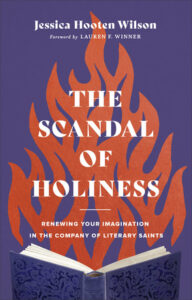 The Scandal of Holiness: Renewing Your Imagination in the Company of Literary Saints (Brazos Press) $24.99
The Scandal of Holiness: Renewing Your Imagination in the Company of Literary Saints (Brazos Press) $24.99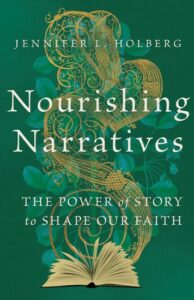 Nourishing Narratives: The Power of Story to Shape Our Faith Jennifer L. Holberg (IVP) $25.00
Nourishing Narratives: The Power of Story to Shape Our Faith Jennifer L. Holberg (IVP) $25.00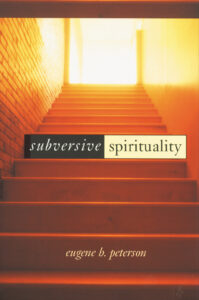 Subversive Christianity Eugene Peterson (Eerdmans) $27.50
Subversive Christianity Eugene Peterson (Eerdmans) $27.50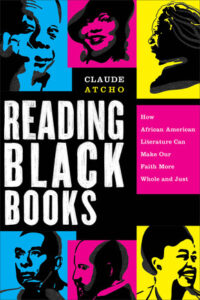 Reading Black Books: How African American Literature Can Make Our Faith More Whole and Just Claude Atcho (Brazos) $19.99
Reading Black Books: How African American Literature Can Make Our Faith More Whole and Just Claude Atcho (Brazos) $19.99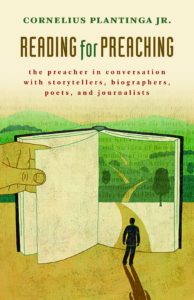 Reading for Preaching: The Preacher in Conversation with Storytellers, Biographers, Poets, and Journalists Cornelius Plantinga (Eerdmans) $14.99
Reading for Preaching: The Preacher in Conversation with Storytellers, Biographers, Poets, and Journalists Cornelius Plantinga (Eerdmans) $14.99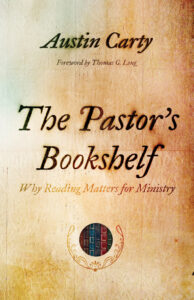 The Pastor’s Bookshelf: Why Reading Matters for Ministry Austin Carty (Eerdmans) $19.99
The Pastor’s Bookshelf: Why Reading Matters for Ministry Austin Carty (Eerdmans) $19.99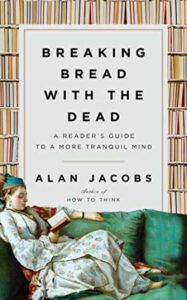 Breaking Bread with the Dead: A Reader’s Guide to a More Tranquil Mind Alan Jacobs (Penguin) $16.00
Breaking Bread with the Dead: A Reader’s Guide to a More Tranquil Mind Alan Jacobs (Penguin) $16.00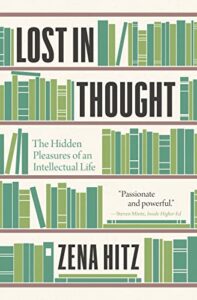 Lost in Thought: The Hidden Pleasures of an Intellectual Life Zena Hitz (Princeton University Press) $16.95
Lost in Thought: The Hidden Pleasures of an Intellectual Life Zena Hitz (Princeton University Press) $16.95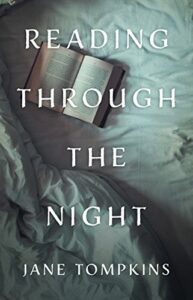 Reading Through the Night Jane Tompkins (University of Virginia Press) $19.95
Reading Through the Night Jane Tompkins (University of Virginia Press) $19.95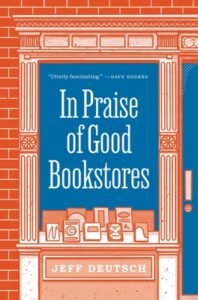 In Praise of Good Bookstores Jeff Deutsche (Princeton University Press) $19.95
In Praise of Good Bookstores Jeff Deutsche (Princeton University Press) $19.95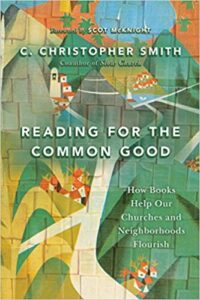 Reading for the Common Good: How Books Help Our Churches and Neighborhoods Flourish C. Christopher Smith (IVP) $16.00
Reading for the Common Good: How Books Help Our Churches and Neighborhoods Flourish C. Christopher Smith (IVP) $16.00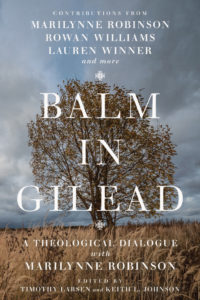 Balm in Gilead: A Theological Dialogue with Marilynne Robinson edited by Timothy Larsen & Keith Johnson (IVP Academic) $28.00
Balm in Gilead: A Theological Dialogue with Marilynne Robinson edited by Timothy Larsen & Keith Johnson (IVP Academic) $28.00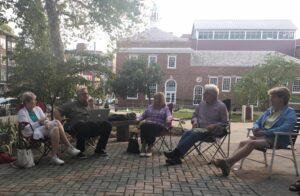 (By the way, if you are in the York area, our church, First Presbyterian Church of York, is hosting its second summer “Third Thursday” outdoor book club on July 20th and we will be informally discussing Gilead. All are welcome, even if you haven’t yet read the thoughtful, slow, moving story.)
(By the way, if you are in the York area, our church, First Presbyterian Church of York, is hosting its second summer “Third Thursday” outdoor book club on July 20th and we will be informally discussing Gilead. All are welcome, even if you haven’t yet read the thoughtful, slow, moving story.)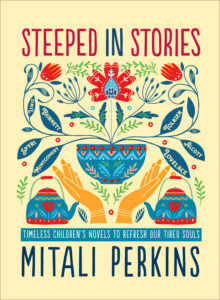 Steeped in Stories: Timeless Children’s Novels to Refresh Our Tired Souls Mitali Perkins (Broadleaf Books) $24.99 OUR SALE PRICE = $19.99
Steeped in Stories: Timeless Children’s Novels to Refresh Our Tired Souls Mitali Perkins (Broadleaf Books) $24.99 OUR SALE PRICE = $19.99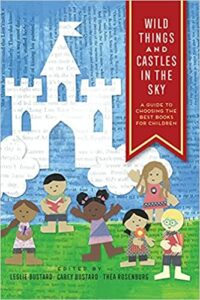 Wild Things and Castles in the Sky: A Guide to Choosing the Best Books for Children edited by Leslie Bustard, Carey Bustard & Thea Rosenburg (Square Halo Books) $29.99 OUR SALE PRICE = $23.99
Wild Things and Castles in the Sky: A Guide to Choosing the Best Books for Children edited by Leslie Bustard, Carey Bustard & Thea Rosenburg (Square Halo Books) $29.99 OUR SALE PRICE = $23.99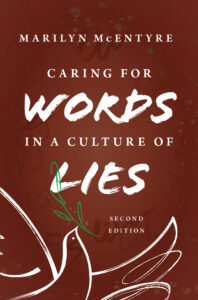 Caring for Words in a Culture of Lies Marilyn McEntyre (Eerdmans) $19.99
Caring for Words in a Culture of Lies Marilyn McEntyre (Eerdmans) $19.99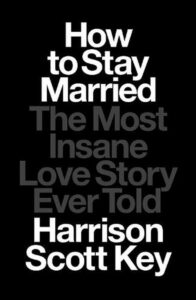 How to Stay Married: The Most Insane Love Story Ever Told Harrison Scott Key (Avid Reader Press) $27.99
How to Stay Married: The Most Insane Love Story Ever Told Harrison Scott Key (Avid Reader Press) $27.99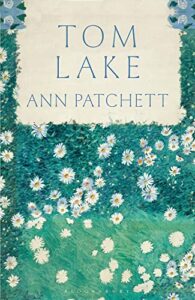 Tom Lake: A Novel Ann Patchett (Harper) $30.00 / OUR SALE PRICE = $24.00
Tom Lake: A Novel Ann Patchett (Harper) $30.00 / OUR SALE PRICE = $24.00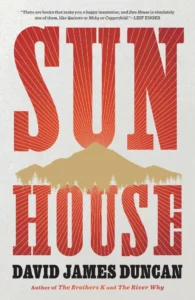 Sun House David James Duncan (Little, Brown) $35.00
Sun House David James Duncan (Little, Brown) $35.00 Hope in the Valley Mitali Perkins (Farrar, Straus and Giroux) $17.99 / OUR SALE PRICE = $14.39
Hope in the Valley Mitali Perkins (Farrar, Straus and Giroux) $17.99 / OUR SALE PRICE = $14.39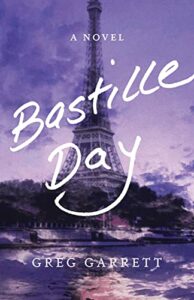 Bastille Day: A Novel Greg Garrett (Raven) $19.99
Bastille Day: A Novel Greg Garrett (Raven) $19.99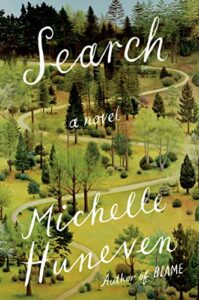 Search: A Novel Michelle Huneven (Penguin Press) $27.00 (hardcover); $18.00 (paperback)
Search: A Novel Michelle Huneven (Penguin Press) $27.00 (hardcover); $18.00 (paperback) Out of Esau: A Novel Michelle Webster Hein (Counterpoint) $27.00 / OUR SALE PRICE = $21.60
Out of Esau: A Novel Michelle Webster Hein (Counterpoint) $27.00 / OUR SALE PRICE = $21.60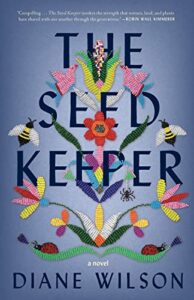 The Seed Keeper: A Novel Diane Wilson (Milkweed Editions) $18.00 / OUR SALE PRICE = $14.40
The Seed Keeper: A Novel Diane Wilson (Milkweed Editions) $18.00 / OUR SALE PRICE = $14.40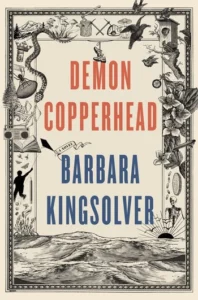 Demon Copperhead
Demon Copperhead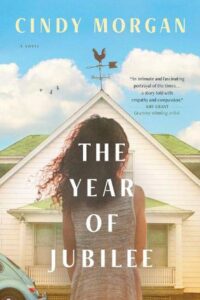 The Year of Jubilee: A Novel Cindy Morgan (Tyndale) $16.99 / OUR SALE PRICE = $13.59
The Year of Jubilee: A Novel Cindy Morgan (Tyndale) $16.99 / OUR SALE PRICE = $13.59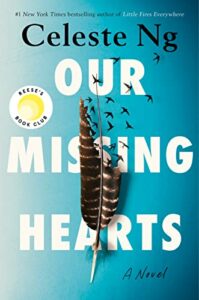 Our Missing Hearts: A Novel Celeste Ng (Penguin Press) $29.00 / OUR SALE PRICE = $23.20
Our Missing Hearts: A Novel Celeste Ng (Penguin Press) $29.00 / OUR SALE PRICE = $23.20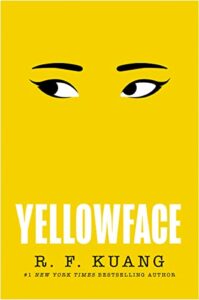 Yellowface R.F. Huang (William Morrow) $30.00
Yellowface R.F. Huang (William Morrow) $30.00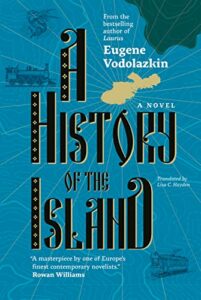 A History of the Island: A Novel Eugene Vodolazkin (Plough Publishing) $26.95 / OUR SALE PRICE = $21.56
A History of the Island: A Novel Eugene Vodolazkin (Plough Publishing) $26.95 / OUR SALE PRICE = $21.56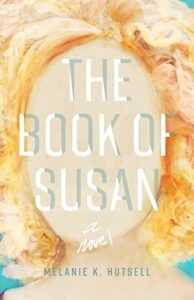 The Book of Susan: A Novel Melanie K. Hutsell (Raven) $18.00
The Book of Susan: A Novel Melanie K. Hutsell (Raven) $18.00 My Father’s House: A Novel Joseph O’Connor (Europa Editions) $27.00 / OUR SALE PRICE = $21.60
My Father’s House: A Novel Joseph O’Connor (Europa Editions) $27.00 / OUR SALE PRICE = $21.60 Technics and Civilization
Technics and Civilization The Technological Society Jacques Ellul
The Technological Society Jacques Ellul Technology and the Character of Contemporary Life: A Philosophical Inquiry Albert Borgmann (The University of Chicago Press) $37.00
Technology and the Character of Contemporary Life: A Philosophical Inquiry Albert Borgmann (The University of Chicago Press) $37.00  of Technology Albert Borgmann (Brazos Press) $20.00 / OUR SALE PRICE = $16.00
of Technology Albert Borgmann (Brazos Press) $20.00 / OUR SALE PRICE = $16.00 Holding On To Reality: The Nature of Information at the Turn of the Millennium Albert Borgmann (The University of Chicago Press) $28.00
Holding On To Reality: The Nature of Information at the Turn of the Millennium Albert Borgmann (The University of Chicago Press) $28.00  Technology and the Good Life? edited by Eric Higgs, Andrew Light, & David Strong (The University of Chicago Press) $25.99 / OUR SALE PRICE = $20.79
Technology and the Good Life? edited by Eric Higgs, Andrew Light, & David Strong (The University of Chicago Press) $25.99 / OUR SALE PRICE = $20.79 Technology and the Future: A Philosophical Challenge Egbert Schuurman (Paideia Press) $19.99 / OUR SALE PRICE = $15.99
Technology and the Future: A Philosophical Challenge Egbert Schuurman (Paideia Press) $19.99 / OUR SALE PRICE = $15.99 The Technological World Picture and an Ethics of Responsibility: Struggles in the Ethics of Technology Egbert
The Technological World Picture and an Ethics of Responsibility: Struggles in the Ethics of Technology Egbert  Responsible Technology edited by Stephen V. Monsma (Eerdmans/ Calvin Center for Christian Scholarship) $27.50 / OUR SALE PRICE = $22.00
Responsible Technology edited by Stephen V. Monsma (Eerdmans/ Calvin Center for Christian Scholarship) $27.50 / OUR SALE PRICE = $22.00 The Whale and the Reactor: A Search for Limits in an Age of High Technology Langdon Winner (The University of Chicago Press) $26.00 / OUR SALE PRICE = $20.80
The Whale and the Reactor: A Search for Limits in an Age of High Technology Langdon Winner (The University of Chicago Press) $26.00 / OUR SALE PRICE = $20.80 Beyond Paradise: Technology and the Kingdom of God Jack Swearengen (Wipf & Stock) $45.00 / OUR SALE PRICE = $36.00
Beyond Paradise: Technology and the Kingdom of God Jack Swearengen (Wipf & Stock) $45.00 / OUR SALE PRICE = $36.00 Confronting Technology: The Theology of Jacques Ellul Matthew T. Prior (Pickwick Publications) $35.00 / OUR SALE PRICE = $28.00
Confronting Technology: The Theology of Jacques Ellul Matthew T. Prior (Pickwick Publications) $35.00 / OUR SALE PRICE = $28.00 Choices at the Heart of Technology Ruth Conway (Trinity Press International) $32.95 / OUR SALE PRICE = $26.36
Choices at the Heart of Technology Ruth Conway (Trinity Press International) $32.95 / OUR SALE PRICE = $26.36 Illusions of Freedom: Thomas Merton & Jacques Ellul on Technology and the Human Condition Jeffrey M. Shaw (Pickwick Publications) $29.00 / OUR SALE PRICE = $23.20
Illusions of Freedom: Thomas Merton & Jacques Ellul on Technology and the Human Condition Jeffrey M. Shaw (Pickwick Publications) $29.00 / OUR SALE PRICE = $23.20 Returning to Reality: Thomas Merton’s Wisdom for a Technological World Phillip M. Thompson (Cascade Books) $21.00 / OUR SALE PRICE = $16.80
Returning to Reality: Thomas Merton’s Wisdom for a Technological World Phillip M. Thompson (Cascade Books) $21.00 / OUR SALE PRICE = $16.80 God and Gadgets: Following Jesus in a Technological Age Brad J. Kallenberg (Cascade Books) $26.00 / OUR SALE PRICE = $20.80
God and Gadgets: Following Jesus in a Technological Age Brad J. Kallenberg (Cascade Books) $26.00 / OUR SALE PRICE = $20.80 Technopoly: The Surrender of Culture to Technology Neil Postman (Vintage) $16.00 / OUR SALE PRICE = $12.80
Technopoly: The Surrender of Culture to Technology Neil Postman (Vintage) $16.00 / OUR SALE PRICE = $12.80 The Mind and the Machine: What It Means to Be Human and Why It Matters Matthew Dickerson (Brazos Press) $19.99 / OUR SALE PRICE = $15.99 (while supplies last; it has been reprinted and the new price is now considerably more.)
The Mind and the Machine: What It Means to Be Human and Why It Matters Matthew Dickerson (Brazos Press) $19.99 / OUR SALE PRICE = $15.99 (while supplies last; it has been reprinted and the new price is now considerably more.) Habits of the High-Tech Heart: Living Virtuously in the Information Age Quentin Schultze (Baker Academic) $22.00 / OUR SALE PRICE = $17.60 while supplies last
Habits of the High-Tech Heart: Living Virtuously in the Information Age Quentin Schultze (Baker Academic) $22.00 / OUR SALE PRICE = $17.60 while supplies last The Soul of Cyberspace Douglas Groothuis (Wipf & Stock) $19.00 / OUR SALE PRICE = $15.20 (while supplies last; the new price is now considerably more.)
The Soul of Cyberspace Douglas Groothuis (Wipf & Stock) $19.00 / OUR SALE PRICE = $15.20 (while supplies last; the new price is now considerably more.) Information Technology and Cyberspace: Extra-Connected Living? David Pulling (Pilgrim Press) $16.00 / OUR SALE PRICE = $12.80
Information Technology and Cyberspace: Extra-Connected Living? David Pulling (Pilgrim Press) $16.00 / OUR SALE PRICE = $12.80 Appletopia: Media Technology and the Religious Imagination of Steve Jobs Brett T. Robinson (Baylor University press) $24.95 / OUR SALE PRICE = $19.96
Appletopia: Media Technology and the Religious Imagination of Steve Jobs Brett T. Robinson (Baylor University press) $24.95 / OUR SALE PRICE = $19.96 The Philosopher of Palo Alto: Mark Weiser, Xerox PARC, and the Original Internet of Things John Tinnell (The University of Chicago Press) $29.00 / OUR SALE PRICE = $23.20
The Philosopher of Palo Alto: Mark Weiser, Xerox PARC, and the Original Internet of Things John Tinnell (The University of Chicago Press) $29.00 / OUR SALE PRICE = $23.20 From the Garden to the City: The Place of Technology in the Story of God John Dyer (Kregel) $18.99 / OUR SALE PRICE = $15.19
From the Garden to the City: The Place of Technology in the Story of God John Dyer (Kregel) $18.99 / OUR SALE PRICE = $15.19 God, Technology, and the Christian Life Tony Reinke (Crossway) $21.99 / OUR SALE PRICE = $17.59
God, Technology, and the Christian Life Tony Reinke (Crossway) $21.99 / OUR SALE PRICE = $17.59 A Christian Field Guide to Technology for Engineers and Designers Ethan Brue, Derek Schuurman & Steven H. Vanderleest (IVP Academic) $28.00 / OUR SALE PRICE = $22.40
A Christian Field Guide to Technology for Engineers and Designers Ethan Brue, Derek Schuurman & Steven H. Vanderleest (IVP Academic) $28.00 / OUR SALE PRICE = $22.40 Techne: Christian Visions of Technology edited by Gerald Hiestand & Todd Wilson (Cascade Books) $34.00 / OUR SALE PRICE = $27.20
Techne: Christian Visions of Technology edited by Gerald Hiestand & Todd Wilson (Cascade Books) $34.00 / OUR SALE PRICE = $27.20 Modern Technology and the Human Future: A Christian Appraisal Craig M. Gay (IVP Academic) $30.00 / OUR SALE PRICE = $24.00
Modern Technology and the Human Future: A Christian Appraisal Craig M. Gay (IVP Academic) $30.00 / OUR SALE PRICE = $24.00 You Are Not a Gadget Jaron Lanier (Vintage) $17.00 / OUR SALE PRICE = $13.60
You Are Not a Gadget Jaron Lanier (Vintage) $17.00 / OUR SALE PRICE = $13.60 I do not agree with it, really, but you should also know of his little book called a “timely call-to-arms” — Ten Arguments for Deleting Your Social Media Accounts Right Now (Picador; $13.00 / OUR SALE PRICE = $10.40.) And, by the way, while you’re at it, you can order from us a pocket-sized, handsome little Counterpoint edition of the famous Wendell Berry essay, Why I Am Not Going to Buy a Computer ($10.00 / OUR SALE PRICE = $8.00.)
I do not agree with it, really, but you should also know of his little book called a “timely call-to-arms” — Ten Arguments for Deleting Your Social Media Accounts Right Now (Picador; $13.00 / OUR SALE PRICE = $10.40.) And, by the way, while you’re at it, you can order from us a pocket-sized, handsome little Counterpoint edition of the famous Wendell Berry essay, Why I Am Not Going to Buy a Computer ($10.00 / OUR SALE PRICE = $8.00.) The Art of Living for a Technological Age: Toward a Humanizing Performance Ashley John Mayes (Fortress) $18.00 / OUR SALE PRICE = $14.40
The Art of Living for a Technological Age: Toward a Humanizing Performance Ashley John Mayes (Fortress) $18.00 / OUR SALE PRICE = $14.40 Restless Devices: Recovering Personhood, Presence, and Place in the Digital Age Felicia Wu Son (IVP Academic) $24.00 / OUR SALE PRICE = $19.20
Restless Devices: Recovering Personhood, Presence, and Place in the Digital Age Felicia Wu Son (IVP Academic) $24.00 / OUR SALE PRICE = $19.20 iGods: How Technology Shapes Our Spiritual and Social Lives Craig Detweiler (Brazos Press) $22.00 / OUR SALE PRICE = $17.60
iGods: How Technology Shapes Our Spiritual and Social Lives Craig Detweiler (Brazos Press) $22.00 / OUR SALE PRICE = $17.60 Shaping a Digital World: Faith, Culture and Computer Technology Derek C. Schuurman (IVP Academic) $20.00 / OUR SALE PRICE = $16.00
Shaping a Digital World: Faith, Culture and Computer Technology Derek C. Schuurman (IVP Academic) $20.00 / OUR SALE PRICE = $16.00 Networked Theology: Negotiating Faith in a Digital Culture Heidi Campbell and Stephen Garner (Baker Academic) $22.99 / OUR SALE PRICE = $18.39
Networked Theology: Negotiating Faith in a Digital Culture Heidi Campbell and Stephen Garner (Baker Academic) $22.99 / OUR SALE PRICE = $18.39 People of the Screen: How Evangelicals Created ‘The Digital Bible’ and How It Shapes Their Reading of Scripture John Dyer (Oxford University Press) $29.95 / OUR SALE PRICE = $23.96
People of the Screen: How Evangelicals Created ‘The Digital Bible’ and How It Shapes Their Reading of Scripture John Dyer (Oxford University Press) $29.95 / OUR SALE PRICE = $23.96 Life in Code: A Personal History of Technology Ellen Ullman (FSG) $27.00 / OUR SALE PRICE = $21.60
Life in Code: A Personal History of Technology Ellen Ullman (FSG) $27.00 / OUR SALE PRICE = $21.60 Viral: How Social Networking Is Poised to Ignite Revival Leonard Sweet (Waterbrook) $14.99 / OUR SALE PRICE = $11.99 while supplies last
Viral: How Social Networking Is Poised to Ignite Revival Leonard Sweet (Waterbrook) $14.99 / OUR SALE PRICE = $11.99 while supplies last The Digital Public Square: Christian Ethics in a Technological Society edited by Jason Thacker (B+H) $34.99 / OUR SALE PRICE = $27.99
The Digital Public Square: Christian Ethics in a Technological Society edited by Jason Thacker (B+H) $34.99 / OUR SALE PRICE = $27.99 Virtual Reality Church: Pitfalls and Possibilities (Or How to Think Biblically About Church in Your Pajamas, VR Baptisms, Jesus Avatars, and Whatever Else Is Coming Next) Darrel Bock & Jonathan Armstrong (Moody Publishers) $15.99 / OUR SALE PRICE = $12.79
Virtual Reality Church: Pitfalls and Possibilities (Or How to Think Biblically About Church in Your Pajamas, VR Baptisms, Jesus Avatars, and Whatever Else Is Coming Next) Darrel Bock & Jonathan Armstrong (Moody Publishers) $15.99 / OUR SALE PRICE = $12.79 The Virtual Body of Christ in a Suffering World Deanna A. Thompson (Abingdon Press) $21.99
The Virtual Body of Christ in a Suffering World Deanna A. Thompson (Abingdon Press) $21.99 Embodied Liturgy: Virtual Reality and Liturgical Theology in Conversation C. Andrew Doyle (Church Publishing) $24.95 / OUR SALE PRICE = $19.96
Embodied Liturgy: Virtual Reality and Liturgical Theology in Conversation C. Andrew Doyle (Church Publishing) $24.95 / OUR SALE PRICE = $19.96 Grace and Gigabytes: Being Church in a Tech-Shaped Culture Ryan M. Panzer (Fortress) $17.99 / OUR SALE PRICE = $14.39
Grace and Gigabytes: Being Church in a Tech-Shaped Culture Ryan M. Panzer (Fortress) $17.99 / OUR SALE PRICE = $14.39 The Age of AI: Artificial Intelligence and the Future of Humanity Jason Thacker (Zondervan) $22.99 / OUR SALE PRICE = $18.39
The Age of AI: Artificial Intelligence and the Future of Humanity Jason Thacker (Zondervan) $22.99 / OUR SALE PRICE = $18.39 2084: Artificial Intelligence and the Future of Humanity John Lennox (Zondervan) $19.99 / OUR SALE PRICE = $15.99
2084: Artificial Intelligence and the Future of Humanity John Lennox (Zondervan) $19.99 / OUR SALE PRICE = $15.99 Robot Theology: Old Questions Through New Media Joshua Smith (Resource Publications) $21.00 / OUR SALE PRICE = $16.80
Robot Theology: Old Questions Through New Media Joshua Smith (Resource Publications) $21.00 / OUR SALE PRICE = $16.80 The Robot Will See You Now: Artificial Intelligence and the Christian Faith edited by John Wyatt & Stephen N. Williams (SPCK) $22.99 / OUR SALE PRICE = $18.39
The Robot Will See You Now: Artificial Intelligence and the Christian Faith edited by John Wyatt & Stephen N. Williams (SPCK) $22.99 / OUR SALE PRICE = $18.39 Braving the Future: Christian Faith in a World of Limitless Tech Douglas Estes (Herald Press) $16.99 / OUR SALE PRICE = $13.59
Braving the Future: Christian Faith in a World of Limitless Tech Douglas Estes (Herald Press) $16.99 / OUR SALE PRICE = $13.59 In Our Image: Artificial Intelligence and the Human Spirit Noreen Herzfeld (Fortress) $24.00 / OUR SALE PRICE = $19.20
In Our Image: Artificial Intelligence and the Human Spirit Noreen Herzfeld (Fortress) $24.00 / OUR SALE PRICE = $19.20 The Artifice of Intelligence: Divine and Human Relationship in a Robotic Age Noreen Herzfeld (Fortress Press) $34.00 / OUR SALE PRICE = $27.20
The Artifice of Intelligence: Divine and Human Relationship in a Robotic Age Noreen Herzfeld (Fortress Press) $34.00 / OUR SALE PRICE = $27.20 Artificial Intelligence and the Apocalyptic Imagination – Artificial Agency and Human Hope Michael J. Paulus (Cascade) $23.00 / OUR SALE PRICE = $18.40
Artificial Intelligence and the Apocalyptic Imagination – Artificial Agency and Human Hope Michael J. Paulus (Cascade) $23.00 / OUR SALE PRICE = $18.40 Transhumanism and the Image of God: Today’s Technology and the Future of Christian Discipleship Jacob Shatzer (IVP Academic) $25.00 / OUR SALE PRICE = $20.00
Transhumanism and the Image of God: Today’s Technology and the Future of Christian Discipleship Jacob Shatzer (IVP Academic) $25.00 / OUR SALE PRICE = $20.00 The Tech-Wise Family: Everyday Steps for Putting Technology in Its Proper Place Andy Crouch (Baker) $16.99 / OUR SALE PRICE = $13.59
The Tech-Wise Family: Everyday Steps for Putting Technology in Its Proper Place Andy Crouch (Baker) $16.99 / OUR SALE PRICE = $13.59 By the way, his then-teen daughter, Amy Crouch, heading off to college, wrote a nice afterward that expressed what it was like growing up with the guidelines of her parents in a tech-wise family. This then led to her writing her own little hardback, a companion to The Tech-Wise Family called My Tech-Wise Life: Growing Up and Making Choices in a World of Devices (Baker Books; $15.99 / OUR SALE PRICE = $12.79)
By the way, his then-teen daughter, Amy Crouch, heading off to college, wrote a nice afterward that expressed what it was like growing up with the guidelines of her parents in a tech-wise family. This then led to her writing her own little hardback, a companion to The Tech-Wise Family called My Tech-Wise Life: Growing Up and Making Choices in a World of Devices (Baker Books; $15.99 / OUR SALE PRICE = $12.79) Following Jesus in a Digital Age Jason Thacker (B+H) $12.99 / OUR SALE PRICE = $10.39
Following Jesus in a Digital Age Jason Thacker (B+H) $12.99 / OUR SALE PRICE = $10.39 12 Ways Your Phone Is Changing You Tony Reinke (Crossway) $16.99 / OUR SALE PRICE = $13.59
12 Ways Your Phone Is Changing You Tony Reinke (Crossway) $16.99 / OUR SALE PRICE = $13.59 A Wolf in Their Pockets: 13 Ways the Social Internet Threatens the People You Lead Chris Martin (Moody Publishers) $16.99 / OUR SALE PRICE = $13.59
A Wolf in Their Pockets: 13 Ways the Social Internet Threatens the People You Lead Chris Martin (Moody Publishers) $16.99 / OUR SALE PRICE = $13.59 Always On: Practicing Faith in a New Media Landscape Angela Williams Gorrell (Baker Academic) $22.99 / OUR SALE PRICE = $18.39
Always On: Practicing Faith in a New Media Landscape Angela Williams Gorrell (Baker Academic) $22.99 / OUR SALE PRICE = $18.39 Everyday Sabbath: How to Lead Your Dance with Media and Technology in Mindful and Sacred Ways
Everyday Sabbath: How to Lead Your Dance with Media and Technology in Mindful and Sacred Ways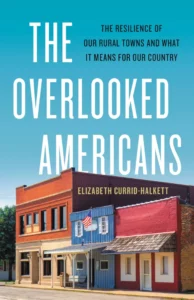 The Overlooked Americans: The Resilience of Our Rural Towns and What It Means for Our Country Elizabeth Currid-Halkett (Basic Books) $32.00 – OUR SALE PRICE = $25.60
The Overlooked Americans: The Resilience of Our Rural Towns and What It Means for Our Country Elizabeth Currid-Halkett (Basic Books) $32.00 – OUR SALE PRICE = $25.60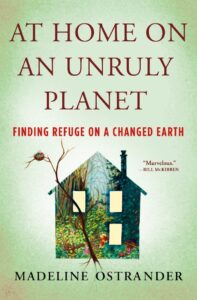 At Home on An Unruly Planet: Finding Refuge on a Changed Earth Madeline Ostrander (Holt) $28.99 – OUR SALE PRICE = $23.19
At Home on An Unruly Planet: Finding Refuge on a Changed Earth Madeline Ostrander (Holt) $28.99 – OUR SALE PRICE = $23.19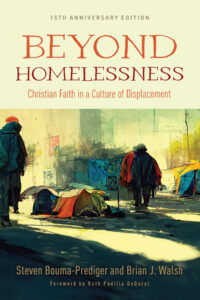 Ooooh, I kept thinking of the masterpiece by Brian Walsh & Steven Bouma-Prediger, Beyond Homelessness: Christian Faith in a Culture of Displacement which is coming out in September in a newly updated and considerably expanded edition. (Eerdmans; $39.99 – OUR 20% SALE PRICE = $31.99.) YOU CAN PRE-ORDER IT FROM US NOW.
Ooooh, I kept thinking of the masterpiece by Brian Walsh & Steven Bouma-Prediger, Beyond Homelessness: Christian Faith in a Culture of Displacement which is coming out in September in a newly updated and considerably expanded edition. (Eerdmans; $39.99 – OUR 20% SALE PRICE = $31.99.) YOU CAN PRE-ORDER IT FROM US NOW.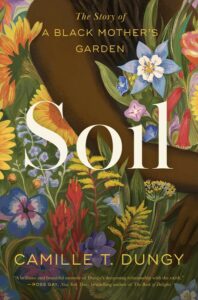 Soil: The Story of a Black Mother’s Garden Camille T. Dungy (Simon & Schuster) $28.99 – OUR SALE PRICE = $23.19
Soil: The Story of a Black Mother’s Garden Camille T. Dungy (Simon & Schuster) $28.99 – OUR SALE PRICE = $23.19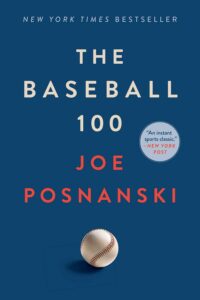 The Baseball 100 Joe Posnanski (Avid Readers Press) $25.00 – OUR SALE PRICE = $20.00
The Baseball 100 Joe Posnanski (Avid Readers Press) $25.00 – OUR SALE PRICE = $20.00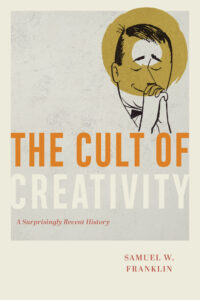 The Cult of Creativity: A Surprisingly Recent History Samuel W. Franklin (University of Chicago Press) $26.00 – OUR SALE PRICE = $20.80
The Cult of Creativity: A Surprisingly Recent History Samuel W. Franklin (University of Chicago Press) $26.00 – OUR SALE PRICE = $20.80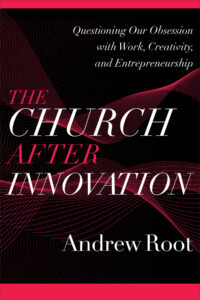 Franklin’s amazing historical study reminded me of a book I’ve mentioned before, which also weaves together history, cultural studies, and astute social observation — The Church After Innovation: Questioning Our Obsession with Work, Creativity, and Entrepreneurship by Andrew Root (Baker Academic; $27.99 / OUR SALE PRICE = $22.39.) Not long ago I did a whimsical presentation about the importance of Root’s book at a gathering of church leaders working on their creativity and innovation. It didn’t sell well, shall we say, despite my clever invitation to consider it alongside their valuable theme. Maybe somebody here will pick it up.
Franklin’s amazing historical study reminded me of a book I’ve mentioned before, which also weaves together history, cultural studies, and astute social observation — The Church After Innovation: Questioning Our Obsession with Work, Creativity, and Entrepreneurship by Andrew Root (Baker Academic; $27.99 / OUR SALE PRICE = $22.39.) Not long ago I did a whimsical presentation about the importance of Root’s book at a gathering of church leaders working on their creativity and innovation. It didn’t sell well, shall we say, despite my clever invitation to consider it alongside their valuable theme. Maybe somebody here will pick it up. Last Light: How Six Great Artists Made Old Age a Time of Triumph Richard Lacy (Simon & Schuster) $35.00 – OUR SALE PRICE = $28.00
Last Light: How Six Great Artists Made Old Age a Time of Triumph Richard Lacy (Simon & Schuster) $35.00 – OUR SALE PRICE = $28.00 God Picks Up the Pieces: Ecclesiastes as a Chorus of Voices Calvin G. Seerveld (Dordt College Press) $14.99
God Picks Up the Pieces: Ecclesiastes as a Chorus of Voices Calvin G. Seerveld (Dordt College Press) $14.99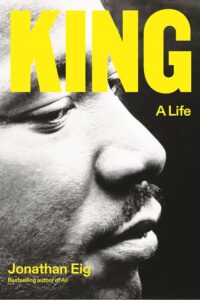 King: A Life Jonathan Eig (FSG) $35.00 – OUR SALE PRICE = $28.00
King: A Life Jonathan Eig (FSG) $35.00 – OUR SALE PRICE = $28.00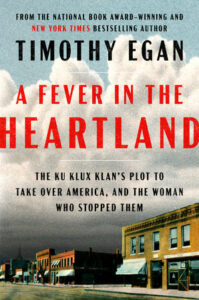 A Fever in the Heartland: The Ku Klux Klan’s Plot to Take Over America, and the Woman Who Stopped Them Timothy Egan (Viking) $30.00
A Fever in the Heartland: The Ku Klux Klan’s Plot to Take Over America, and the Woman Who Stopped Them Timothy Egan (Viking) $30.00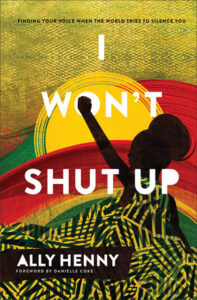 I Won’t Shut Up: Finding Your Voice When the World Tries to Silence You Ally Henny (Baker) $24.99 – OUR SALE PRICE = $19.99
I Won’t Shut Up: Finding Your Voice When the World Tries to Silence You Ally Henny (Baker) $24.99 – OUR SALE PRICE = $19.99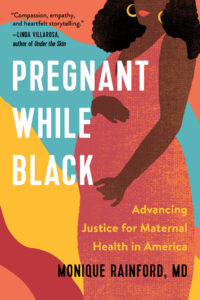 Pregnant While Black: Advancing Justice for Maternal Health in America Monique Rainford (Broadleaf) $26.99 – OUR SALE PRICE = $21.59
Pregnant While Black: Advancing Justice for Maternal Health in America Monique Rainford (Broadleaf) $26.99 – OUR SALE PRICE = $21.59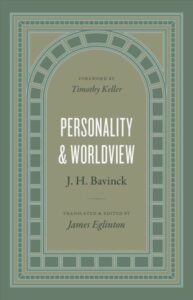 Personality & Worldview J. H Bavinck (Crossway) $22.99
Personality & Worldview J. H Bavinck (Crossway) $22.99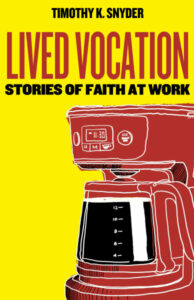 Lived Vocation: Stories of Faith at Work Timothy K. Snyder (Fortress Press) $21.99 – OUR SALE PRICE = $17.59
Lived Vocation: Stories of Faith at Work Timothy K. Snyder (Fortress Press) $21.99 – OUR SALE PRICE = $17.59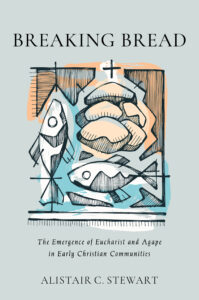 Breaking Bread: The Emergence of Eucharist and Agape in Early Christian Communities Alistair C. Stewart (Eerdmans) $49.99 – OUR SALE PRICE = $39.99
Breaking Bread: The Emergence of Eucharist and Agape in Early Christian Communities Alistair C. Stewart (Eerdmans) $49.99 – OUR SALE PRICE = $39.99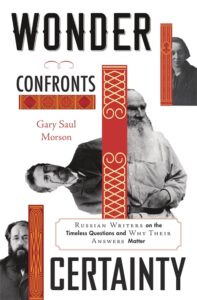 Wonder Confronts Certainty: Russian Writers on the Timeless Questions and Why Their Answers Matter Gary Saul Morton (Belknap / Harvard University Press) $37.95 – OUR SALE PRICE = $30.36
Wonder Confronts Certainty: Russian Writers on the Timeless Questions and Why Their Answers Matter Gary Saul Morton (Belknap / Harvard University Press) $37.95 – OUR SALE PRICE = $30.36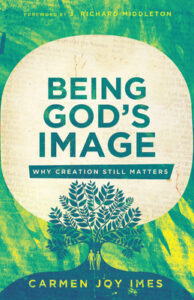 Being God’s Image: Why Creation Still Matters Carmen Joy Imes (IVP) $22.00 OUR SALE PRICE = $17.60
Being God’s Image: Why Creation Still Matters Carmen Joy Imes (IVP) $22.00 OUR SALE PRICE = $17.60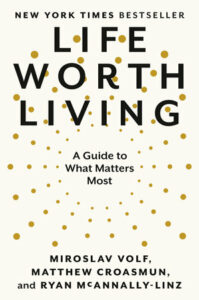 Life Worth Living: A Guide to What Matters Most Miroslav Volf, Matthew Croasmun, and Ryan McCannally-Linz
Life Worth Living: A Guide to What Matters Most Miroslav Volf, Matthew Croasmun, and Ryan McCannally-Linz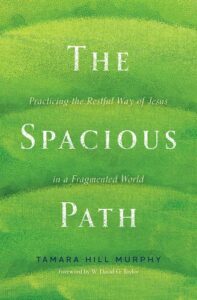 The Spacious Path: Practicing the Restful Ways of Jesus in a Fragmented World Tamara Hill Murphy (Herald Press) $18.99 OUR SALE PRICE = $15.19
The Spacious Path: Practicing the Restful Ways of Jesus in a Fragmented World Tamara Hill Murphy (Herald Press) $18.99 OUR SALE PRICE = $15.19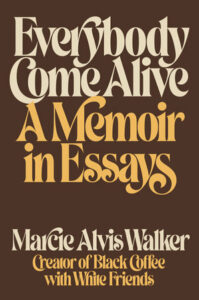 Everybody Come Alive: A Memoir in Essays Marcie Alias Walker (Convergent) $27.00 OUR SALE PRICE = $21.60
Everybody Come Alive: A Memoir in Essays Marcie Alias Walker (Convergent) $27.00 OUR SALE PRICE = $21.60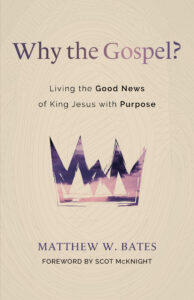 Why the Gospel? Living the Good News of King Jesus with a Purpose Matthew W. Bates (Eerdmans) $17.99 OUR SALE PRICE = $14.39
Why the Gospel? Living the Good News of King Jesus with a Purpose Matthew W. Bates (Eerdmans) $17.99 OUR SALE PRICE = $14.39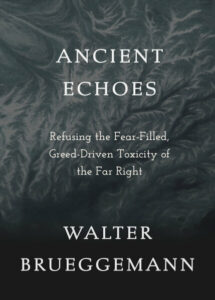 Ancient Echoes: Refusing the Fear-Filled, Greed-Driven Toxicity of the Far Right Walter Brueggemann (Fortress Press) $16.95 OUR SALE PRICE = $13.56
Ancient Echoes: Refusing the Fear-Filled, Greed-Driven Toxicity of the Far Right Walter Brueggemann (Fortress Press) $16.95 OUR SALE PRICE = $13.56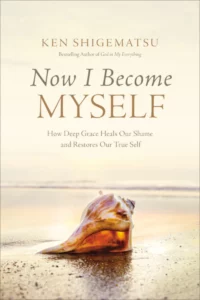 Now I Become Myself: How Deep Grace Heals Our Shame and Restores Our True Self Ken Shigematsu (Zondervan) $19.99 OUR SALE PRICE = $15.99
Now I Become Myself: How Deep Grace Heals Our Shame and Restores Our True Self Ken Shigematsu (Zondervan) $19.99 OUR SALE PRICE = $15.99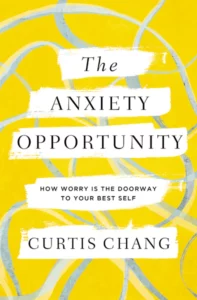 The Anxiety Opportunity: How Worry Is the Doorway to Your Best Self Curtis Chang (Zondervan) $18.99 OUR SALE PRICE = $15.19
The Anxiety Opportunity: How Worry Is the Doorway to Your Best Self Curtis Chang (Zondervan) $18.99 OUR SALE PRICE = $15.19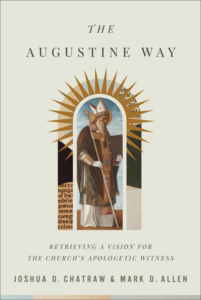 The Augustine Way: Retrieving a Vision for the Churches Apologetic Wisdom Joshua Chatraw & Mark Allen (Baker Academic) $24.99 OUR SALE PRICE = $19.99
The Augustine Way: Retrieving a Vision for the Churches Apologetic Wisdom Joshua Chatraw & Mark Allen (Baker Academic) $24.99 OUR SALE PRICE = $19.99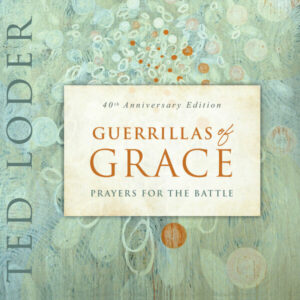 Guerrillas of Grace: Prayers for the Battle 40th Anniversary Edition Ted Loder (with art by Ed Kearns) (Fortress Press) $19.99 OUR SALE PRICE = $15.99
Guerrillas of Grace: Prayers for the Battle 40th Anniversary Edition Ted Loder (with art by Ed Kearns) (Fortress Press) $19.99 OUR SALE PRICE = $15.99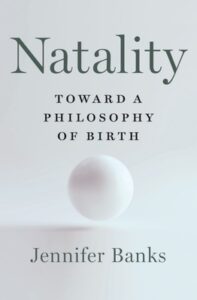 Natality: Toward a Philosophy of Birth Jennifer Banks (Norton) $27.95 OUR SALE PRICE = $22.36
Natality: Toward a Philosophy of Birth Jennifer Banks (Norton) $27.95 OUR SALE PRICE = $22.36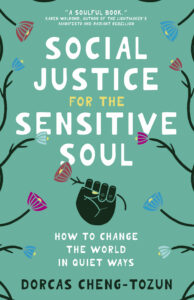 Social Justice for the Sensitive Soul: How to Change the World in Quiet Ways Dorcas Cheng-Tozun (Broadleaf) $26.99 OUR SALE PRICE = $21.59
Social Justice for the Sensitive Soul: How to Change the World in Quiet Ways Dorcas Cheng-Tozun (Broadleaf) $26.99 OUR SALE PRICE = $21.59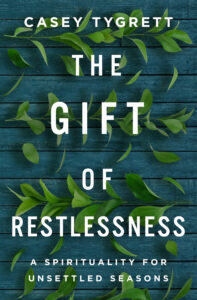 The Gift of Restlessness: A Spirituality for Unsettled Seasons Casey Tygrett (Broadleaf) $18.99 OUR SALE PRICE = $15.19
The Gift of Restlessness: A Spirituality for Unsettled Seasons Casey Tygrett (Broadleaf) $18.99 OUR SALE PRICE = $15.19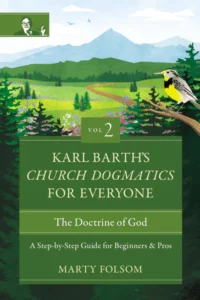 Karl Barth’s Church Dogmatics for Everyone — The Doctrine of God: A Step-by-Step Guide for Beginners & Pros Marty Folsom (Zondervan Academic) $36.99 OUR SALE PRICE = $29.59
Karl Barth’s Church Dogmatics for Everyone — The Doctrine of God: A Step-by-Step Guide for Beginners & Pros Marty Folsom (Zondervan Academic) $36.99 OUR SALE PRICE = $29.59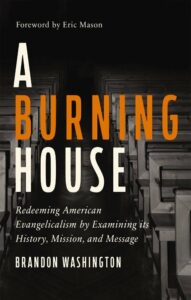 A Burning House: Redeeming American Evangelicalism by Examining Its History, Mission, and Message Brandon Washington (Zondervan) $26.99 OUR SALE PRICE = $21.59
A Burning House: Redeeming American Evangelicalism by Examining Its History, Mission, and Message Brandon Washington (Zondervan) $26.99 OUR SALE PRICE = $21.59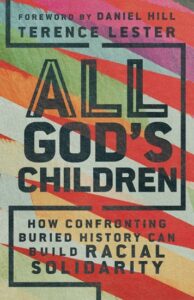 All God’s Children: How Confronting Buried History Can Build Racial Solidarity
All God’s Children: How Confronting Buried History Can Build Racial Solidarity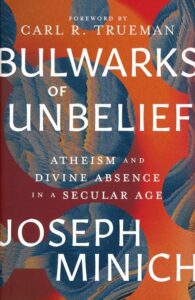 Bulwarks of Unbelief: Atheism and Divine Absence in a Secular Age Jospeh Minich (Lexham Academic) $32.99 OUR SALE PRICE = $26.39
Bulwarks of Unbelief: Atheism and Divine Absence in a Secular Age Jospeh Minich (Lexham Academic) $32.99 OUR SALE PRICE = $26.39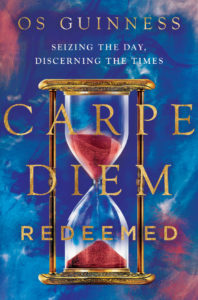 Carpe Diem Redeemed: Seizing the Day, Discerning the Times Os Guinness (IVP) $18.00 OUR SALE PRICE = $14.40
Carpe Diem Redeemed: Seizing the Day, Discerning the Times Os Guinness (IVP) $18.00 OUR SALE PRICE = $14.40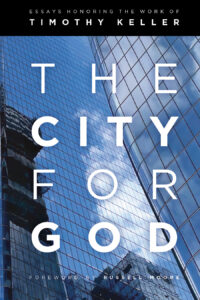 The City for God: Essays Honoring the Work of Timothy Keller edited by Ned Bustard (Square Halo Books) $24.99 OUR SALE PRICE = $19.99
The City for God: Essays Honoring the Work of Timothy Keller edited by Ned Bustard (Square Halo Books) $24.99 OUR SALE PRICE = $19.99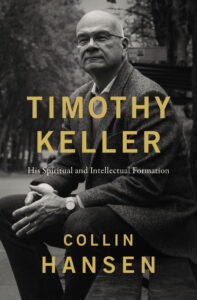 Timothy Keller: His Spiritual and Intellectual Formation Collin Hansen (Zondervan) $26.99 OUR SALE PRICE = $21.59
Timothy Keller: His Spiritual and Intellectual Formation Collin Hansen (Zondervan) $26.99 OUR SALE PRICE = $21.59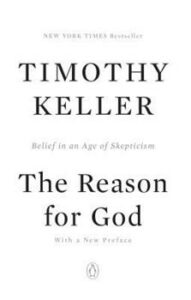 Reason for God: Belief in an Age of Skepticism Timothy Keller (Penguin) $18.00 OUR SALE PRICE = $14.40
Reason for God: Belief in an Age of Skepticism Timothy Keller (Penguin) $18.00 OUR SALE PRICE = $14.40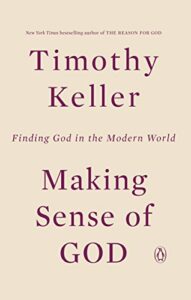 Making Sense of God: Finding God in the Modern World Timothy Keller (Penguin) $18.00 OUR SALE PRICE = $14.40
Making Sense of God: Finding God in the Modern World Timothy Keller (Penguin) $18.00 OUR SALE PRICE = $14.40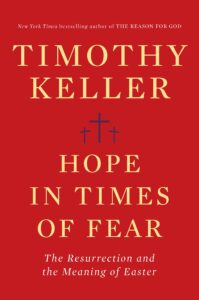 Hope in Times of Fear: The Resurrection and the Meaning of Easter Timothy Keller (Penguin) $17.00 OUR SALE PRICE = $13.60
Hope in Times of Fear: The Resurrection and the Meaning of Easter Timothy Keller (Penguin) $17.00 OUR SALE PRICE = $13.60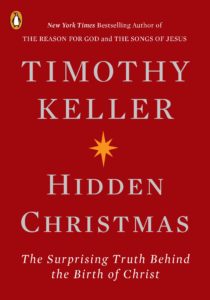 Hidden Christmas: The Surprising Truth Behind the Birth of Christ Timothy Keller (Penguin) $16.00 OUR SALE PRICE = $12.80
Hidden Christmas: The Surprising Truth Behind the Birth of Christ Timothy Keller (Penguin) $16.00 OUR SALE PRICE = $12.80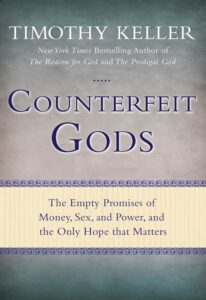 The Empty Promises of Money, Sex, and Power, and the Only Hope That Matters Timothy Keller (Penguin) $17.00 OUR SALE PRICE = $13.60
The Empty Promises of Money, Sex, and Power, and the Only Hope That Matters Timothy Keller (Penguin) $17.00 OUR SALE PRICE = $13.60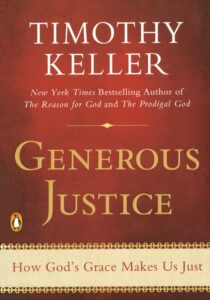 Generous Justice: How God’s Grace Makes Us Just Timothy Keller (Penguin) $18.00 OUR SALE PRICE = $14.40
Generous Justice: How God’s Grace Makes Us Just Timothy Keller (Penguin) $18.00 OUR SALE PRICE = $14.40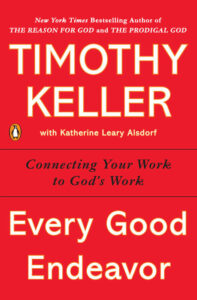 Every Good Endeavor: Connection Your Work to God’s Work Timothy Keller (Penguin) $18.00 OUR SALE PRICE = $14.40
Every Good Endeavor: Connection Your Work to God’s Work Timothy Keller (Penguin) $18.00 OUR SALE PRICE = $14.40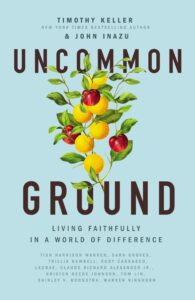 Uncommon Ground: Living Faithfully in a World of Difference edited by Timothy Keller & John Inazu (Thomas Nelson) $18.99 OUR SALE PRICE = $15.19
Uncommon Ground: Living Faithfully in a World of Difference edited by Timothy Keller & John Inazu (Thomas Nelson) $18.99 OUR SALE PRICE = $15.19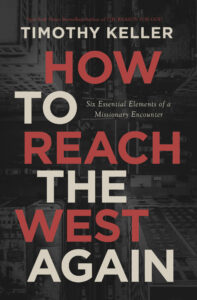 How to Reach the West Again: Six Essential Elements of a Missionary Encounter Timothy Keller (Redeemer City to City) $4.99
How to Reach the West Again: Six Essential Elements of a Missionary Encounter Timothy Keller (Redeemer City to City) $4.99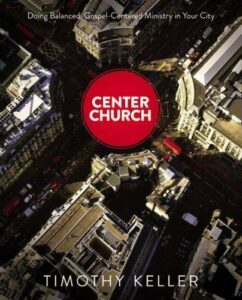 Center Church: Doing Balanced, Gospel-Centered Ministry in Your City Timothy Keller (Zondervan) OUR SALE PRICE = $36.99 OUR SALE PRICE = $29.59
Center Church: Doing Balanced, Gospel-Centered Ministry in Your City Timothy Keller (Zondervan) OUR SALE PRICE = $36.99 OUR SALE PRICE = $29.59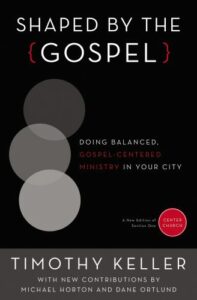 Shaped by the Gospel: Doing Balanced, Gospel-Centered Ministry in Your City Timothy Keller with additional chapters by Michael Horton and Dane Ortlund (Zondervan) $15.99 OUR SALE PRICE = $12.79
Shaped by the Gospel: Doing Balanced, Gospel-Centered Ministry in Your City Timothy Keller with additional chapters by Michael Horton and Dane Ortlund (Zondervan) $15.99 OUR SALE PRICE = $12.79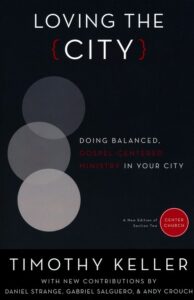 Loving the City: Doing Balanced, Gospel-Centered Ministry in Your City Timothy Keller with additional chapters by Gabriel Salguero, Daniel Strange & Andy Crouch (Zondervan) $18.99 OUR SALE PRICE = $15.19
Loving the City: Doing Balanced, Gospel-Centered Ministry in Your City Timothy Keller with additional chapters by Gabriel Salguero, Daniel Strange & Andy Crouch (Zondervan) $18.99 OUR SALE PRICE = $15.19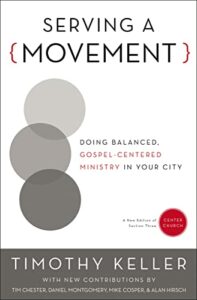 Serving a Movement: Doing Balanced, Gospel-Centered Ministry in Your City Timothy Keller with additional chapters by Tim Chester, Daniel Montgomery, Mike Cosper, & Alan Hirsch (Zondervan) $18.99 OUR SALE PRICE = $15.19
Serving a Movement: Doing Balanced, Gospel-Centered Ministry in Your City Timothy Keller with additional chapters by Tim Chester, Daniel Montgomery, Mike Cosper, & Alan Hirsch (Zondervan) $18.99 OUR SALE PRICE = $15.19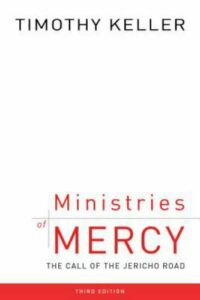 Ministries of Mercy: The Call of the Jericho Road Timothy Keller (P&R) $14.99 OUR SALE PRICE = $11.99
Ministries of Mercy: The Call of the Jericho Road Timothy Keller (P&R) $14.99 OUR SALE PRICE = $11.99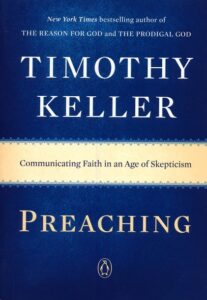 Preaching: Communicating Faith in an Age of Skepticism (Penguin) $17.00 OUR SALE PRICE = $13.60
Preaching: Communicating Faith in an Age of Skepticism (Penguin) $17.00 OUR SALE PRICE = $13.60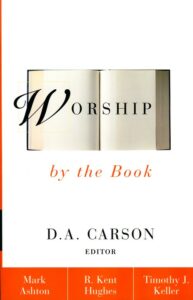 Worship by the Book Mark Ashton, Kent Hughes & Timothy Keller (Zondervan) $16.99 OUR SALE PRICE = $13.59
Worship by the Book Mark Ashton, Kent Hughes & Timothy Keller (Zondervan) $16.99 OUR SALE PRICE = $13.59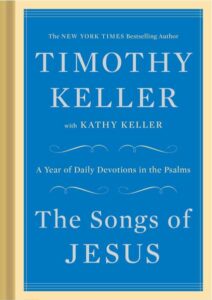 Songs of Jesus: A Year of Daily Devotions in the Psalms Timothy and Kathy Keller (Viking) $21.00 OUR SALE PRICE = $16.80
Songs of Jesus: A Year of Daily Devotions in the Psalms Timothy and Kathy Keller (Viking) $21.00 OUR SALE PRICE = $16.80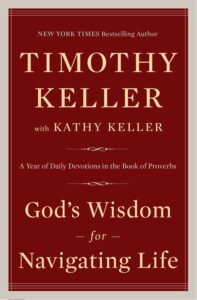 God’s Wisdom for Navigating Life: A Year of Daily Devotions in the Book of Proverbs Timothy and Kathy Keller (Viking) $21.00 OUR SALE PRICE = $16.80
God’s Wisdom for Navigating Life: A Year of Daily Devotions in the Book of Proverbs Timothy and Kathy Keller (Viking) $21.00 OUR SALE PRICE = $16.80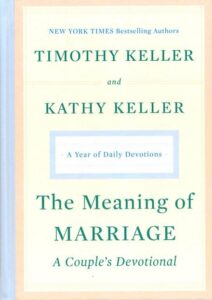 A Year of Daily Devotions Timothy & Kathy Keller (Viking) $20.00
A Year of Daily Devotions Timothy & Kathy Keller (Viking) $20.00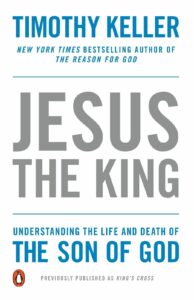 Jesus the King: Understanding the Life and Death of the Son of God Timothy Keller (Penguin) $18.00
Jesus the King: Understanding the Life and Death of the Son of God Timothy Keller (Penguin) $18.00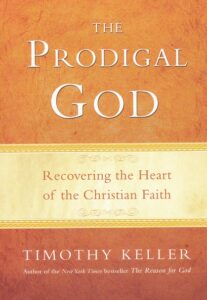 The Prodigal God: Recovering the Heart of the Christian Faith Timothy Keller (Penguin) $18.00
The Prodigal God: Recovering the Heart of the Christian Faith Timothy Keller (Penguin) $18.00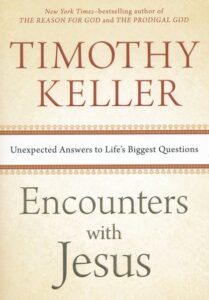 Encounters with Jesus: Unexpected Answers to Life’s Biggest Questions Timothy Keller (Penguin) $18.00
Encounters with Jesus: Unexpected Answers to Life’s Biggest Questions Timothy Keller (Penguin) $18.00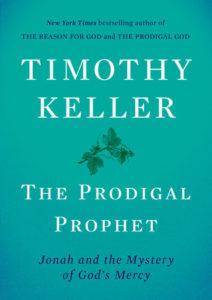 Rediscovering Jonah: The Secret of God’s Mercy Timothy Keller (Penguin) $17.00 OUR SALE PRICE = $13.60
Rediscovering Jonah: The Secret of God’s Mercy Timothy Keller (Penguin) $17.00 OUR SALE PRICE = $13.60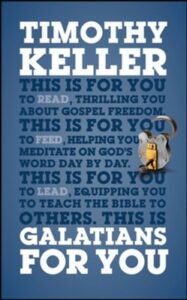 Galatians For You Timothy Keller (The Good Book Company) $17.99 OUR SALE PRICE = $14.39
Galatians For You Timothy Keller (The Good Book Company) $17.99 OUR SALE PRICE = $14.39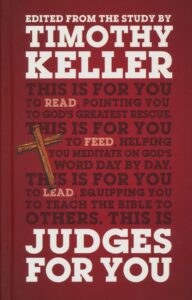 Judges For You Timothy Keller (The Good Book Company) $17.99
Judges For You Timothy Keller (The Good Book Company) $17.99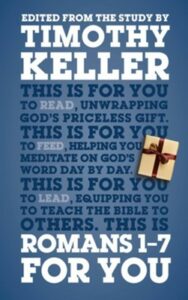
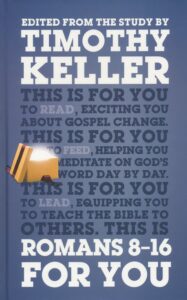 Romans 1–7 For You Timothy Keller (The Good Book Company) $17.99 OUR SALE PRICE = $14.39
Romans 1–7 For You Timothy Keller (The Good Book Company) $17.99 OUR SALE PRICE = $14.39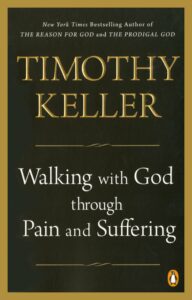 Walking with God through Pain and Suffering Timothy Keller (Penguin) $18.00 OUR SALE PRICE = $14.40
Walking with God through Pain and Suffering Timothy Keller (Penguin) $18.00 OUR SALE PRICE = $14.40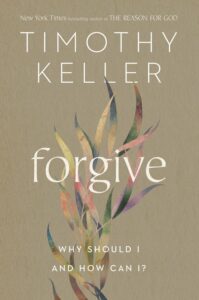 Forgive: Why Should I and How Can I? Timothy Keller (Viking) $27.00 OUR SALE PRICE = $21.60
Forgive: Why Should I and How Can I? Timothy Keller (Viking) $27.00 OUR SALE PRICE = $21.60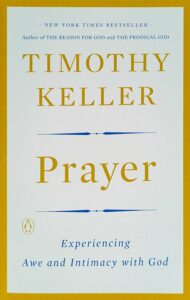 Prayer: Experiencing Awe and Intimacy with God Timothy Keller (Penguin) $18.00 OUR SALE PRICE = $14.40
Prayer: Experiencing Awe and Intimacy with God Timothy Keller (Penguin) $18.00 OUR SALE PRICE = $14.40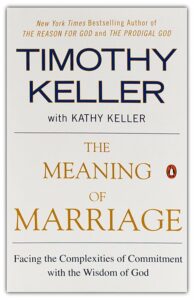 The Meaning of Marriage: Facing the Complexities of Commitment with the Wisdom of God Timothy Keller with Kathy Keller (Penguin) $18.00 OUR SALE PRICE = $14.40
The Meaning of Marriage: Facing the Complexities of Commitment with the Wisdom of God Timothy Keller with Kathy Keller (Penguin) $18.00 OUR SALE PRICE = $14.40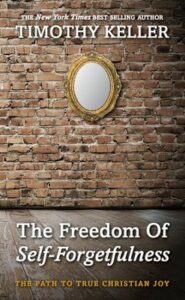 The Freedom of Self Forgetfulness: The Path to True Christian Joy Timothy Keller (10 of Those Publishing) $4.99 OUR SALE PRICE = $3.99
The Freedom of Self Forgetfulness: The Path to True Christian Joy Timothy Keller (10 of Those Publishing) $4.99 OUR SALE PRICE = $3.99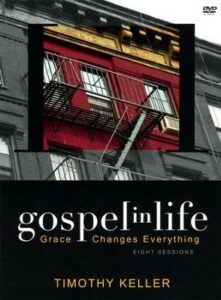 Gospel in Life: Grace Changes Everything Video Study DVD Timothy Keller (Redeemer City to City /Zondervan) $41.00 for DVD and Study Book combo OUR SALE PRICE = $32.80
Gospel in Life: Grace Changes Everything Video Study DVD Timothy Keller (Redeemer City to City /Zondervan) $41.00 for DVD and Study Book combo OUR SALE PRICE = $32.80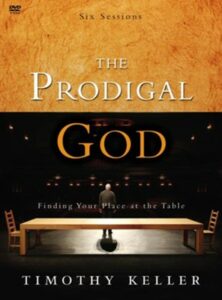 The Prodigal God: Finding Your Place at the Table Video Study DVD Timothy Keller (Redeemer City to City /Zondervan) $41.00 for DVD and Study Book combo OUR SALE PRICE = $32.80
The Prodigal God: Finding Your Place at the Table Video Study DVD Timothy Keller (Redeemer City to City /Zondervan) $41.00 for DVD and Study Book combo OUR SALE PRICE = $32.80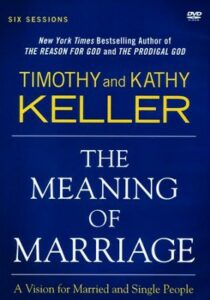 The Meaning of Marriage: A Vision for Married and Single People Video Study DVD Timothy & Kathy Keller (Redeemer City to City / Zondervan) $41.00. $41.00 for DVD and Study Book combo OUR SALE PRICE = $32.80
The Meaning of Marriage: A Vision for Married and Single People Video Study DVD Timothy & Kathy Keller (Redeemer City to City / Zondervan) $41.00. $41.00 for DVD and Study Book combo OUR SALE PRICE = $32.80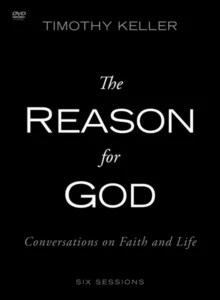 The Reason for God Video Study: Conversations on Faith and Life DVD Timothy Keller (Redeemer City to City /Zondervan) $41.00 for DVD and Study Book combo OUR SALE PRICE = $32.80
The Reason for God Video Study: Conversations on Faith and Life DVD Timothy Keller (Redeemer City to City /Zondervan) $41.00 for DVD and Study Book combo OUR SALE PRICE = $32.80